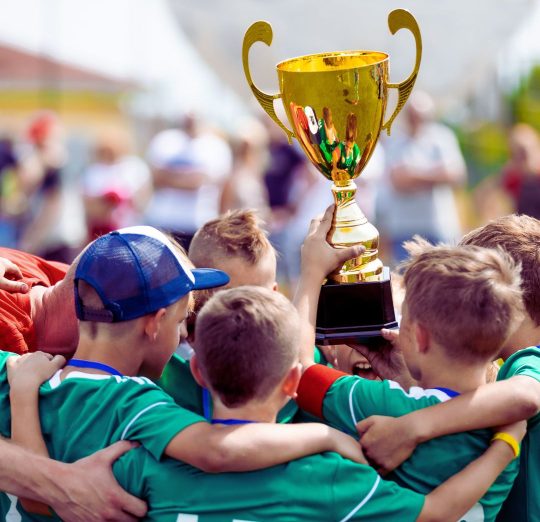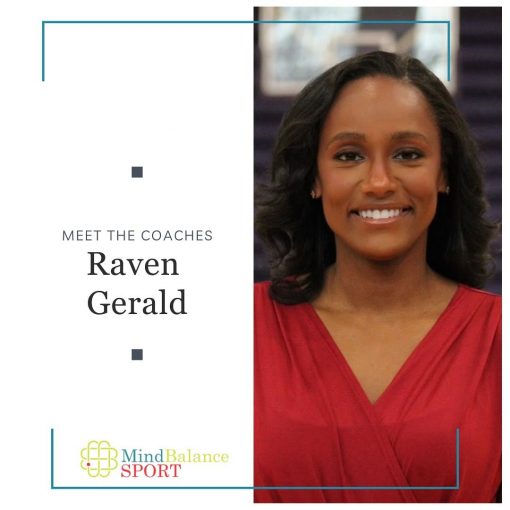Sports Psychologist in Omaha, NE
We train the other half of the athlete
You want to work on your mental game, but how do you train your brain?
Mental training does not get much media attention, but at MindBalanceSPORT we know it is a game changer. The mental skills you will learn at MindBalanceSPORT are generalizable in the classroom, in sport and in life!
We know that mental skills can be successfully taught, even at an early age.

Our Services
Meet the Team





testimonials
Athlete Stories: Real Comebacks, Real Results

Emma, a high school basketball player, tore her ACL in the middle of her junior season. After surgery, she struggled with self-doubt and fear every time she stepped back on the court. Through sport psychology training, she learned visualization techniques and confidence-building exercises that helped her regain trust in her knee. When she returned for her senior season, she didn’t just play—she led her team to the playoffs.

Carlos, a soccer player, suffered a stress fracture in his foot and had to miss half of his season. Sitting out was mentally tougher than the pain itself. We worked on mental engagement strategies to keep him sharp—studying game film, setting small rehab goals, and using mental imagery to stay ready. When he was finally cleared, his confidence never wavered.

Jordan, a track athlete, strained her hamstring before a major competition. She feared losing speed and falling behind competitors. Instead of focusing on what she couldn’t do, we redirected her energy toward mental preparation, using self-talk and goal setting to keep her confidence strong. When she returned, she set a new personal record.
EXCELLENTTrustindex verifies that the original source of the review is Google. It was a great help to my 14-year-old competitive volleyball player daughter. Raven was great to understand and connect with her from start to end. We will continue with our sessions as needed.Trustindex verifies that the original source of the review is Google. Great results! I’ve loved working with Paula. Our sessions have greatly improved both the physical and mental aspects of my tennis game. I’m playing better and having more fun! Highly recommend!Trustindex verifies that the original source of the review is Google. Our family had a wonderful experience with Paula Castro. We needed some additional confidence in a particular area/sport and Paula helped get us there. We know who to turn to if we need help again. She’s been a Blessing. Thank you, Paula!Trustindex verifies that the original source of the review is Google. I highly recommend MindBalanceSPORT. Our son works with John Howard. John is very caring, positive, and effective at working with teenagers. John is an adept listener and created an individualized plan tailored to our son’s personality. After just a few sessions with John, we noticed a significant improvement in our son’s motivation and mental approach to sports and life in general. Our son looks forward to meeting with John and tells us that he benefits immensely from their connection.Trustindex verifies that the original source of the review is Google. Paula Castro is an outstanding professional on the field. She has helped my daughter improve her confidence, preparation, and thanks to these session she feels more prepared and motivated. Paula takes the time also to share (what she can) and align with us as parents to be on the same page. Strongly recommended!Trustindex verifies that the original source of the review is Google. MineBalanceSPORT has quickly become the area's expert in sports psychology. Their reputation is well deserved given their incredibly thoughtful, scientifically based approaches to treating performance-related conditions, and I have only heard glowing, positive feedback from those who have engaged in their program. I will also add that Drs. Jones and Chirby presented to us (our group comprises of 15+ doctors and masters level clinicans) about their program and impressed us all with their level of expertise and passion for this field. I give them my highest recommendation.Trustindex verifies that the original source of the review is Google. Dr. Jones was beyond helpful to me throughout our time together. If you are an athlete and you need advice or assistance this is the place to come to. She completely changed my outlook and mindset in a time when I needed her most. I look forward to staying in touch with her and am forever thankful for her expertise.Trustindex verifies that the original source of the review is Google. Paula has been a huge help with my daughter Morgan coming off her injury. It’s been 18 months since she’s played basketball and she’s thriving because I know Paula is guiding her the right direction. As a mother, I’m extremely gratefulTrustindex verifies that the original source of the review is Google. If you are looking for Amazing Psychologists who can help support you in your sports performance, you need to call MindBalanceSPORT! Dr. Chirby and her colleagues are a wealth of knowledge, they have so many helpful techniques for mind balance, and they have so much compassion for the communities that they serve! Highly recommend!!!
Recovery
While Everyone Has A Physical Ceiling, There Is No Mental Ceiling.
Exploring the Role of Sports Psychologists in Omaha, NE
Sports psychology is an interdisciplinary field that integrates knowledge from both psychology and kinesiology to understand, predict, and enhance performance in sport. It focuses on the psychological aspects of sports involvement, including motivation, emotions, cognition and social interaction.
This discipline aims at understanding how physiological factors may affect an athlete’s physical performance, as well as how participation in sports can enhance or damage psychological well-being. It also covers how mental strategies can be used to improve training and performance outcomes.
- Motivation and Self-Confidence: This aspect revolves around understanding what drives athletes to engage in sport activities and enhancing their confidence levels.
- Emotion Management: Athletes are trained on how to manage their emotions before, during, and after a game. This allows them to maintain optimum focus on their performance.
- Performance Enhancement: By delving into cognitive processes such as attention control and decision making, psychologists help athletes perform at their peak even under intense pressure.
- Team Dynamics: This area analyzes the interpersonal relationships within a team setting. It focuses on fostering effective communication skills, leadership characteristics, cohesion among team members among others.
Sports psychologists employ various methods to gather data about athletes’ experiences including interviews, observations, surveys and psychophysiological measures like heart rate variability or EEG analysis. They then use this information to develop interventions designed to improve individual or team performances.
It’s worth noting that practicing as a sports psychologist requires extensive education and training. In the U.S., for instance, aspirants need to secure a doctoral degree in psychology (Ph.D. or Psy.D.), complete supervised clinical experience hours (internship), pass an examination by the Association for Applied Sport Psychology (AASP) ,and comply with ongoing continuing education requirements.
The field of sports psychology is an exciting one that offers immense potential for enhancing athletic performance while promoting positive psychological development. Given the increasing emphasis on mental health and well-being in sports, its relevance continues to grow with each passing day. With the right knowledge, understanding, and application of sports psychology principles, athletes can unlock their full potential and thrive in their respective sports.
Enhancing Athletic Performance through Sports Counselling in Omaha, NE
Sports psychology plays a pivotal role in enhancing the performance of athletes. It is an interdisciplinary field that bridges the gap between psychology and sports, helping athletes achieve their optimal performance through different strategies. These strategies work by improving focus, boosting self-confidence, and mitigating the effects of high-pressure situations in athletes.
One key strategy in sports psychology is goal setting. This involves defining clear, measurable, and achievable targets for the athlete. The goals could be related to skill development, physical fitness, or personal growth. By having a clear target to aim for, athletes can increase their motivation and concentration.
- Short-term goals: These are immediate targets such as improving a specific skill within a week or achieving a certain number of minutes in an endurance test.
- Long-term goals: These usually involve big-picture aspirations like winning a regional tournament or being selected for the national team.
Another strategy commonly employed by sports psychologists is mental imagery or visualization. This technique encourages athletes to mentally rehearse their performance before it happens. Athletes can visualize successful outcomes which helps them to build self-confidence and reduce anxiety.
Sports psychologists equip athletes with relaxation techniques to help them manage stress and anxiety during high-pressure situations. These techniques include deep breathing exercises, progressive muscle relaxation (PMR), and mindfulness meditation.
Cognitive-behavioral techniques play a crucial role in helping athletes control their thoughts and emotions effectively. By learning how to recognize negative thought patterns and replace them with positive ones, athletes can better manage stressors that often come with competitive sports.
Biofeedback is an advanced technique where electronic monitoring devices are used to provide real-time information about bodily functions such as heart rate variability and muscle tension levels. Athletes can learn from this feedback to control these functions better, thereby improving their performance.
Developing and maintaining consistent pre-performance and performance routines also contribute to enhancing athletic performance. These routines can help athletes to stay focused and in the right mental state for optimum performance.
In implementing these strategies, it is essential to remember that each athlete is unique and what works for one might not work for another. Therefore, sports psychologists must tailor these strategies to meet the individual needs of each athlete. The end goal of all these strategies is not just about winning; it’s also about helping athletes enjoy their sport, handle stressors effectively, and experience personal growth.
Exploring Performance Psychology in Omaha, NE
Sports psychologists utilize numerous intervention strategies to enhance an athlete’s performance and well-being. These interventions are designed to address various psychological aspects such as anxiety, stress management, motivation, and concentration that impact an athlete’s performance. Let’s delve into a few prominent types of sports psychology interventions.
- Self-talk: Encouraging positive internal dialogues to boost confidence.
- Mental imagery: Utilizing visualization techniques to enhance performance.
- Goal setting: Establishing achievable targets to motivate athletes.
- Breath-focused exercises: To promote calmness and composure.
- Sensory awareness skills: To improve focus and attention.
- Psychoanalysis: Understanding underlying unconscious conflicts.
- Art therapy: Expression through art forms to resolve emotional issues.
- Client-centered therapy: Encourages self-discovery by providing a supportive environment.
- Gestalt therapy: Helps athletes realize their thoughts, feelings, and actions holistically.
Biofeedback interventions involve using electronic devices to help athletes gain control over their physiological processes related to stress and anxiety, such as heart rate and muscle tension.
In addition to these, sports psychologists may also provide family and group therapies, particularly for younger athletes who might need familial support for better outcomes.
It is important to note that the type of intervention used may vary according to the individual needs of the athlete. It can be tailored based on the athlete’s sport, their level of competition, personal goals, and any specific psychological issues they may have.
By understanding these interventions in sports psychology, athletes can better appreciate the scope of support available to them and how it can contribute towards enhancing not just their performance but also their overall psychological health.
Exploring Sport Performance Training in Omaha, NE and its Impact on Athletes
Engaging with a sports psychologist can yield substantial benefits for athletes, regardless of their level of competition. Sports psychologists can aid in the enhancement of overall performance, help athletes manage pressure and stress effectively, and aid them in overcoming setbacks and injuries.
Find a Sports Psychologist Near Me for Improved Performance
One of the key advantages of working with a sports psychologist is performance improvement. Through various techniques such as goal setting, visualization, and concentration training, sports psychologists assist athletes in maximizing their potential.
- Goal Setting: This involves establishing specific, measurable, achievable, realistic, and time-bound (SMART) goals that provide direction and motivation to athletes.
- Visualization: Athletes are guided to mentally rehearse their performance which helps to build confidence and enhance focus.
- Concentration Training: Various techniques are used to help athletes maintain focus during their performance by managing distractions both on and off the field.
Effective Stress Management
The intense pressure associated with competitive sports often leads to high levels of stress. A sports psychologist provides strategies such as relaxation exercises and mindfulness training that help athletes manage these pressures effectively.
- Relaxation Exercises: Techniques such as deep breathing or progressive muscle relaxation are taught to help reduce physical tension and anxiety.
- Mindfulness Training: This involves training athletes to stay focused on the present moment rather than worrying about past performances or future outcomes.
Overcoming Setbacks
Setbacks such as poor performance or injury can have a significant psychological impact on an athlete. Sports psychologists offer support during these challenging times by helping athletes cope with emotions like frustration or disappointment and guiding them towards a positive path for recovery.
- Coping Strategies: These include cognitive restructuring (changing negative thoughts into positive ones) or distraction techniques (focusing attention away from negative feelings).
- Recovery Support: The psychologist assists in maintaining motivation during rehabilitation from injury by setting recovery goals and focusing on the positive aspects of recovery.
Enhancing Team Dynamics
For team sports, a sports psychologist can play a vital role in enhancing team cohesion and communication. They provide strategies to build trust among teammates, improve communication skills, and manage conflicts effectively.
- Building Trust: Team building activities or group therapy sessions can be used to enhance trust among team members.
- Conflict Management: The psychologist offers mediation in case of conflicts and provides strategies to handle disagreements constructively.
In essence, investing in sports psychology is not just about enhancing performance but also about fostering mental well-being, resilience, and team dynamics. It is an integral part of sports that contributes significantly to the overall growth and development of athletes.
Discovering the Value of a Sports Mental Coach in Omaha, NE
When it comes to investing in sports psychology, many stakeholders, including athletes, coaches, and sports organizations, may be uncertain about the cost involved and the value it brings. In this section, we shed light on these factors to provide a clearer understanding of why sports psychology is worth considering.
Initial Investment
The cost of hiring a sports psychologist varies depending on several factors like their level of experience, location, and their specialist areas. However, according to ziprecruiter.com statistics as of August 2021, the average annual pay for a Sports Psychologist in the United States is $80,282 a year. Depending on certain circumstances such as geographical location or workload requirements, this figure could go higher or lower.
Long-Term Benefits and Value
- Improved Athletic Performance: Through mental conditioning techniques such as visualization and self-talk, athletes can enhance their performance on the field. These mental skills are crucial for maintaining high-level performance under pressure.
- Emotional Stability: Athletes often face immense pressure that can lead to stress and anxiety. A sports psychologist helps athletes manage these emotions effectively ensuring better overall emotional health.
- Career Longevity: By helping athletes deal with injuries mentally and psychologically get back into form after an injury layoff or defeat and maintain peak performance consistency; a sports psychologist significantly contributes towards career longevity.
- Team Cohesion: In team sports especially, hiring a sports psychologist can foster positive communication among team members which leads to better teamwork and consequently improved results.
Cost-Benefit Analysis
While understanding the cost associated with hiring a sports psychologist is essential; what’s more important is recognizing its value. It’s not just an expenditure but an investment that yields significant returns in the form of improved performance, emotional well-being, increased career longevity and team cohesion.
Financial Aid and Scholarships
To reduce the burden of the cost of sports psychology services, many organizations offer financial aid or scholarships to athletes. The Association for Applied Sport Psychology (AASP), for example, offers graduate student research grants to enable future professionals in the field to advance their studies.
In summary, while investing in sports psychology does come with a cost, the potential value it brings to an athlete or a sports team far outweighs the initial investment. Understanding this cost-value relationship can empower stakeholders in sports to make informed decisions about incorporating psychological services into their repertoire.
Exploring the Field of Sports Psychiatry in Omaha, NE
Sports psychology is an evolving field that combines the principles of psychology and sports science. Despite its growing recognition, several myths and misconceptions impede athletes’ understanding, leading to a lack of appreciation for the discipline. Let’s debunk some of these common misapprehensions about sports psychology.
Contrary to popular belief, sports psychologists are not merely therapists for athletes with mental health issues. While they do address problems like performance anxiety or pressure management, their work extends beyond remedial interventions. They help improve focus, boost confidence, establish solid routines, enhance motivation levels, and fine-tune mental skills crucial for athletic performance.
The benefits of sports psychology apply equally to athletes at all levels – from beginners to professionals. Younger athletes can learn valuable skills in motivation, concentration and effective goal setting from a sports psychologist which can lay the foundation for continued success as they progress in their respective sport.
This misconception often leads people to overlook the scientific basis of sports psychology. The field is not just about motivating or encouraging athletes but involves research-based interventions that consider cognitive processes, emotional responses, behavioral patterns and neurological aspects impacting athletic performance.
Just like physical training programs are tailored based on individual athlete’s strengths and weaknesses; psychological strategies also need customization according to athlete’s personality traits, learning styles, cultural background among other factors. There isn’t a one-size-fits-all approach in sports psychology.
This myth trivializes the role of sports psychologists by reducing it merely to a ‘counseling’ role. In reality, sports psychologists engage in a wide range of activities, including observing practices, analyzing competition performance, conducting workshops or group sessions, and developing individualized mental skills training programs.
This belief can deter many athletes from seeking out the help of a sports psychologist. It is important to understand that acknowledging one’s mental hurdles is not indicative of weakness but rather a strength that will lead to overall improvement.
By debunking these common misconceptions, we can foster a more accurate understanding of sports psychology. Recognizing its value and potential in enhancing athletic performance can contribute to more effective utilization of sports psychology resources and strategies among athletes across all levels.
Areas Served
{“type”:”elementor”,”siteurl”:”https://mindbalancesport.com/wp-json/”,”elements”:[{“id”:”1ec31f7f”,”elType”:”widget”,”isInner”:false,”isLocked”:false,”settings”:{“content_width”:”full”,”tabs”:[{“tab_title”:”Atlanta”,”tab_content”:”<p><a href=\”https://mindbalancesport.com/counselling-atlanta-ga/\”><span data-sheets-root=\”1\”>Atlanta, GA, Sports Psychologist</span></a></p>”,”_id”:”cfd7191″,”tab_icon”:{“value”:””,”library”:””}},{“tab_title”:”Austin”,”tab_content”:”<p><a href=\”https://mindbalancesport.com/counselling-austin-tx/\”><span data-sheets-root=\”1\”>Austin, TX, Sports Psychologist</span></a></p>”,”_id”:”a1958b9″,”tab_icon”:{“value”:””,”library”:””}},{“tab_title”:”Boston”,”tab_content”:”<p><a href=\”https://mindbalancesport.com/counselling-boston-ma/\”><span data-sheets-root=\”1\”>Boston MA, Sports Psychologist</span></a></p>”,”_id”:”00296a9″,”tab_icon”:{“value”:””,”library”:””}},{“tab_title”:”Chicago”,”tab_content”:”<p><a href=\”https://mindbalancesport.com/counselling-chicago-il/\”><span data-sheets-root=\”1\”>Chicago IL, Sports Psychologist</span></a></p>”,”_id”:”9ae318a”,”tab_icon”:{“value”:””,”library”:””}},{“tab_title”:”Dallas”,”tab_content”:”<p><a href=\”https://mindbalancesport.com/counselling-dallas-tx/\”><span data-sheets-root=\”1\”>Dallas TX, Sports Psychologist</span></a></p>”,”_id”:”618889c”,”tab_icon”:{“value”:””,”library”:””}}],”selected_icon”:{“value”:”fas fa-caret-down”,”library”:”fa-solid”},”selected_active_icon”:{“value”:”fas fa-caret-square-up”,”library”:”fa-solid”},”title_typography_typography”:”custom”,”title_typography_text_decoration”:”none”,”icon_align”:”right”,”content_typography_typography”:”custom”,”__globals__”:{“title_color”:”globals/colors?id=accent”,”content_background_color”:”globals/colors?id=6c9a185″},”_background_image”:{“url”:””,”id”:””,”size”:””},”_background_video_fallback”:{“url”:””,”id”:””,”size”:””},”_background_slideshow_gallery”:[],”_background_hover_image”:{“url”:””,”id”:””,”size”:””},”_background_hover_video_fallback”:{“url”:””,”id”:””,”size”:””},”_background_hover_slideshow_gallery”:[],”_mask_image”:{“url”:””,”id”:””,”size”:””},”title_html_tag”:”div”,”faq_schema”:””,”border_width”:{“unit”:”px”,”size”:””,”sizes”:[]},”border_color”:””,”accordion_spacing”:{“unit”:”px”,”size”:””,”sizes”:[]},”title_color”:””,”title_background”:””,”tab_active_color”:””,”title_active_background”:””,”title_hover_color”:””,”title_hover_background”:””,”title_typography_font_family”:””,”title_typography_font_size”:{“unit”:”px”,”size”:””,”sizes”:[]},”title_typography_font_size_tablet”:{“unit”:”px”,”size”:””,”sizes”:[]},”title_typography_font_size_mobile”:{“unit”:”px”,”size”:””,”sizes”:[]},”title_typography_font_weight”:””,”title_typography_text_transform”:””,”title_typography_font_style”:””,”title_typography_line_height”:{“unit”:”px”,”size”:””,”sizes”:[]},”title_typography_line_height_tablet”:{“unit”:”em”,”size”:””,”sizes”:[]},”title_typography_line_height_mobile”:{“unit”:”em”,”size”:””,”sizes”:[]},”title_typography_letter_spacing”:{“unit”:”px”,”size”:””,”sizes”:[]},”title_typography_letter_spacing_tablet”:{“unit”:”px”,”size”:””,”sizes”:[]},”title_typography_letter_spacing_mobile”:{“unit”:”px”,”size”:””,”sizes”:[]},”title_typography_word_spacing”:{“unit”:”px”,”size”:””,”sizes”:[]},”title_typography_word_spacing_tablet”:{“unit”:”em”,”size”:””,”sizes”:[]},”title_typography_word_spacing_mobile”:{“unit”:”em”,”size”:””,”sizes”:[]},”text_stroke_text_stroke_type”:””,”text_stroke_text_stroke”:{“unit”:”px”,”size”:””,”sizes”:[]},”text_stroke_text_stroke_tablet”:{“unit”:”px”,”size”:””,”sizes”:[]},”text_stroke_text_stroke_mobile”:{“unit”:”px”,”size”:””,”sizes”:[]},”text_stroke_stroke_color”:”#000″,”title_shadow_text_shadow_type”:””,”title_shadow_text_shadow”:{“horizontal”:0,”vertical”:0,”blur”:10,”color”:”rgba(0,0,0,0.3)”},”title_padding”:{“unit”:”px”,”top”:””,”right”:””,”bottom”:””,”left”:””,”isLinked”:true},”title_padding_tablet”:{“unit”:”px”,”top”:””,”right”:””,”bottom”:””,”left”:””,”isLinked”:true},”title_padding_mobile”:{“unit”:”px”,”top”:””,”right”:””,”bottom”:””,”left”:””,”isLinked”:true},”toggle_title_radius”:{“unit”:”px”,”top”:””,”right”:””,”bottom”:””,”left”:””,”isLinked”:true},”toggle_title_border_border”:””,”toggle_title_border_width”:{“unit”:”px”,”top”:””,”right”:””,”bottom”:””,”left”:””,”isLinked”:true},”toggle_title_border_width_tablet”:{“unit”:”px”,”top”:””,”right”:””,”bottom”:””,”left”:””,”isLinked”:true},”toggle_title_border_width_mobile”:{“unit”:”px”,”top”:””,”right”:””,”bottom”:””,”left”:””,”isLinked”:true},”toggle_title_border_color”:””,”icon_color”:””,”icon_active_color”:””,”icon_hover_color”:””,”icon_size”:{“unit”:”px”,”size”:14,”sizes”:[]},”icon_size_tablet”:{“unit”:”px”,”size”:””,”sizes”:[]},”icon_size_mobile”:{“unit”:”px”,”size”:””,”sizes”:[]},”icon_offset”:{“unit”:”px”,”size”:””,”sizes”:[]},”icon_offset_tablet”:{“unit”:”px”,”size”:””,”sizes”:[]},”icon_offset_mobile”:{“unit”:”px”,”size”:””,”sizes”:[]},”toggle_icon_border_border”:””,”toggle_icon_border_width”:{“unit”:”px”,”top”:””,”right”:””,”bottom”:””,”left”:””,”isLinked”:true},”toggle_icon_border_width_tablet”:{“unit”:”px”,”top”:””,”right”:””,”bottom”:””,”left”:””,”isLinked”:true},”toggle_icon_border_width_mobile”:{“unit”:”px”,”top”:””,”right”:””,”bottom”:””,”left”:””,”isLinked”:true},”toggle_icon_border_color”:””,”toggle_icon_padding”:{“unit”:”px”,”top”:””,”right”:””,”bottom”:””,”left”:””,”isLinked”:true},”toggle_icon_padding_tablet”:{“unit”:”px”,”top”:””,”right”:””,”bottom”:””,”left”:””,”isLinked”:true},”toggle_icon_padding_mobile”:{“unit”:”px”,”top”:””,”right”:””,”bottom”:””,”left”:””,”isLinked”:true},”toggle_icon_radius”:{“unit”:”px”,”top”:””,”right”:””,”bottom”:””,”left”:””,”isLinked”:true},”icon_space”:{“unit”:”px”,”size”:””,”sizes”:[]},”icon_space_tablet”:{“unit”:”px”,”size”:””,”sizes”:[]},”icon_space_mobile”:{“unit”:”px”,”size”:””,”sizes”:[]},”tab_icon_size”:{“unit”:”px”,”size”:14,”sizes”:[]},”tab_icon_size_tablet”:{“unit”:”px”,”size”:””,”sizes”:[]},”tab_icon_size_mobile”:{“unit”:”px”,”size”:””,”sizes”:[]},”tab_icon_space”:{“unit”:”px”,”size”:””,”sizes”:[]},”tab_icon_space_tablet”:{“unit”:”px”,”size”:””,”sizes”:[]},”tab_icon_space_mobile”:{“unit”:”px”,”size”:””,”sizes”:[]},”content_background_color”:””,”content_color”:””,”content_typography_font_family”:””,”content_typography_font_size”:{“unit”:”px”,”size”:””,”sizes”:[]},”content_typography_font_size_tablet”:{“unit”:”px”,”size”:””,”sizes”:[]},”content_typography_font_size_mobile”:{“unit”:”px”,”size”:””,”sizes”:[]},”content_typography_font_weight”:””,”content_typography_text_transform”:””,”content_typography_font_style”:””,”content_typography_text_decoration”:””,”content_typography_line_height”:{“unit”:”px”,”size”:””,”sizes”:[]},”content_typography_line_height_tablet”:{“unit”:”em”,”size”:””,”sizes”:[]},”content_typography_line_height_mobile”:{“unit”:”em”,”size”:””,”sizes”:[]},”content_typography_letter_spacing”:{“unit”:”px”,”size”:””,”sizes”:[]},”content_typography_letter_spacing_tablet”:{“unit”:”px”,”size”:””,”sizes”:[]},”content_typography_letter_spacing_mobile”:{“unit”:”px”,”size”:””,”sizes”:[]},”content_typography_word_spacing”:{“unit”:”px”,”size”:””,”sizes”:[]},”content_typography_word_spacing_tablet”:{“unit”:”em”,”size”:””,”sizes”:[]},”content_typography_word_spacing_mobile”:{“unit”:”em”,”size”:””,”sizes”:[]},”content_shadow_text_shadow_type”:””,”content_shadow_text_shadow”:{“horizontal”:0,”vertical”:0,”blur”:10,”color”:”rgba(0,0,0,0.3)”},”content_padding”:{“unit”:”px”,”top”:””,”right”:””,”bottom”:””,”left”:””,”isLinked”:true},”content_padding_tablet”:{“unit”:”px”,”top”:””,”right”:””,”bottom”:””,”left”:””,”isLinked”:true},”content_padding_mobile”:{“unit”:”px”,”top”:””,”right”:””,”bottom”:””,”left”:””,”isLinked”:true},”content_padding_border_border”:””,”content_padding_border_width”:{“unit”:”px”,”top”:””,”right”:””,”bottom”:””,”left”:””,”isLinked”:true},”content_padding_border_width_tablet”:{“unit”:”px”,”top”:””,”right”:””,”bottom”:””,”left”:””,”isLinked”:true},”content_padding_border_width_mobile”:{“unit”:”px”,”top”:””,”right”:””,”bottom”:””,”left”:””,”isLinked”:true},”content_padding_border_color”:””,”_title”:””,”_margin”:{“unit”:”px”,”top”:””,”right”:””,”bottom”:””,”left”:””,”isLinked”:true},”_margin_tablet”:{“unit”:”px”,”top”:””,”right”:””,”bottom”:””,”left”:””,”isLinked”:true},”_margin_mobile”:{“unit”:”px”,”top”:””,”right”:””,”bottom”:””,”left”:””,”isLinked”:true},”_padding”:{“unit”:”px”,”top”:””,”right”:””,”bottom”:””,”left”:””,”isLinked”:true},”_padding_tablet”:{“unit”:”px”,”top”:””,”right”:””,”bottom”:””,”left”:””,”isLinked”:true},”_padding_mobile”:{“unit”:”px”,”top”:””,”right”:””,”bottom”:””,”left”:””,”isLinked”:true},”_element_width”:””,”_element_width_tablet”:””,”_element_width_mobile”:””,”_element_custom_width”:{“unit”:”%”,”size”:””,”sizes”:[]},”_element_custom_width_tablet”:{“unit”:”px”,”size”:””,”sizes”:[]},”_element_custom_width_mobile”:{“unit”:”px”,”size”:””,”sizes”:[]},”_grid_column”:””,”_grid_column_tablet”:””,”_grid_column_mobile”:””,”_grid_column_custom”:””,”_grid_column_custom_tablet”:””,”_grid_column_custom_mobile”:””,”_grid_row”:””,”_grid_row_tablet”:””,”_grid_row_mobile”:””,”_grid_row_custom”:””,”_grid_row_custom_tablet”:””,”_grid_row_custom_mobile”:””,”_flex_align_self”:””,”_flex_align_self_tablet”:””,”_flex_align_self_mobile”:””,”_flex_order”:””,”_flex_order_tablet”:””,”_flex_order_mobile”:””,”_flex_order_custom”:””,”_flex_order_custom_tablet”:””,”_flex_order_custom_mobile”:””,”_flex_size”:””,”_flex_size_tablet”:””,”_flex_size_mobile”:””,”_flex_grow”:1,”_flex_grow_tablet”:””,”_flex_grow_mobile”:””,”_flex_shrink”:1,”_flex_shrink_tablet”:””,”_flex_shrink_mobile”:””,”_element_vertical_align”:””,”_element_vertical_align_tablet”:””,”_element_vertical_align_mobile”:””,”_position”:””,”_offset_orientation_h”:”start”,”_offset_x”:{“unit”:”px”,”size”:0,”sizes”:[]},”_offset_x_tablet”:{“unit”:”px”,”size”:””,”sizes”:[]},”_offset_x_mobile”:{“unit”:”px”,”size”:””,”sizes”:[]},”_offset_x_end”:{“unit”:”px”,”size”:0,”sizes”:[]},”_offset_x_end_tablet”:{“unit”:”px”,”size”:””,”sizes”:[]},”_offset_x_end_mobile”:{“unit”:”px”,”size”:””,”sizes”:[]},”_offset_orientation_v”:”start”,”_offset_y”:{“unit”:”px”,”size”:0,”sizes”:[]},”_offset_y_tablet”:{“unit”:”px”,”size”:””,”sizes”:[]},”_offset_y_mobile”:{“unit”:”px”,”size”:””,”sizes”:[]},”_offset_y_end”:{“unit”:”px”,”size”:0,”sizes”:[]},”_offset_y_end_tablet”:{“unit”:”px”,”size”:””,”sizes”:[]},”_offset_y_end_mobile”:{“unit”:”px”,”size”:””,”sizes”:[]},”_z_index”:””,”_z_index_tablet”:””,”_z_index_mobile”:””,”_element_id”:””,”_css_classes”:””,”e_display_conditions”:””,”_element_cache”:””,”sina_is_morphing_animation”:””,”sina_transform_effects”:”none”,”sina_transform_perspective”:{“unit”:”px”,”size”:”1000″,”sizes”:[]},”sina_transform_perspective_tablet”:{“unit”:”px”,”size”:””,”sizes”:[]},”sina_transform_perspective_mobile”:{“unit”:”px”,”size”:””,”sizes”:[]},”sina_transform_effects_translateX”:{“unit”:”px”,”size”:”0″,”sizes”:[]},”sina_transform_effects_translateX_tablet”:{“unit”:”px”,”size”:””,”sizes”:[]},”sina_transform_effects_translateX_mobile”:{“unit”:”px”,”size”:””,”sizes”:[]},”sina_transform_effects_translateY”:{“unit”:”px”,”size”:”0″,”sizes”:[]},”sina_transform_effects_translateY_tablet”:{“unit”:”px”,”size”:””,”sizes”:[]},”sina_transform_effects_translateY_mobile”:{“unit”:”px”,”size”:””,”sizes”:[]},”sina_transform_effects_scaleX”:{“unit”:”px”,”size”:”1″,”sizes”:[]},”sina_transform_effects_scaleX_tablet”:{“unit”:”px”,”size”:””,”sizes”:[]},”sina_transform_effects_scaleX_mobile”:{“unit”:”px”,”size”:””,”sizes”:[]},”sina_transform_effects_scaleY”:{“unit”:”px”,”size”:”1″,”sizes”:[]},”sina_transform_effects_scaleY_tablet”:{“unit”:”px”,”size”:””,”sizes”:[]},”sina_transform_effects_scaleY_mobile”:{“unit”:”px”,”size”:””,”sizes”:[]},”sina_transform_effects_scaleZ”:{“unit”:”px”,”size”:”1″,”sizes”:[]},”sina_transform_effects_scaleZ_tablet”:{“unit”:”px”,”size”:””,”sizes”:[]},”sina_transform_effects_scaleZ_mobile”:{“unit”:”px”,”size”:””,”sizes”:[]},”sina_transform_effects_rotateX”:{“unit”:”px”,”size”:”0″,”sizes”:[]},”sina_transform_effects_rotateX_tablet”:{“unit”:”px”,”size”:””,”sizes”:[]},”sina_transform_effects_rotateX_mobile”:{“unit”:”px”,”size”:””,”sizes”:[]},”sina_transform_effects_rotateY”:{“unit”:”px”,”size”:”0″,”sizes”:[]},”sina_transform_effects_rotateY_tablet”:{“unit”:”px”,”size”:””,”sizes”:[]},”sina_transform_effects_rotateY_mobile”:{“unit”:”px”,”size”:””,”sizes”:[]},”sina_transform_effects_rotateZ”:{“unit”:”px”,”size”:”0″,”sizes”:[]},”sina_transform_effects_rotateZ_tablet”:{“unit”:”px”,”size”:””,”sizes”:[]},”sina_transform_effects_rotateZ_mobile”:{“unit”:”px”,”size”:””,”sizes”:[]},”sina_transform_effects_skewX”:{“unit”:”px”,”size”:”0″,”sizes”:[]},”sina_transform_effects_skewX_tablet”:{“unit”:”px”,”size”:””,”sizes”:[]},”sina_transform_effects_skewX_mobile”:{“unit”:”px”,”size”:””,”sizes”:[]},”sina_transform_effects_skewY”:{“unit”:”px”,”size”:”0″,”sizes”:[]},”sina_transform_effects_skewY_tablet”:{“unit”:”px”,”size”:””,”sizes”:[]},”sina_transform_effects_skewY_mobile”:{“unit”:”px”,”size”:””,”sizes”:[]},”sina_transform_effects_filters_css_filter”:””,”sina_transform_effects_filters_blur”:{“unit”:”px”,”size”:0,”sizes”:[]},”sina_transform_effects_filters_brightness”:{“unit”:”px”,”size”:100,”sizes”:[]},”sina_transform_effects_filters_contrast”:{“unit”:”px”,”size”:100,”sizes”:[]},”sina_transform_effects_filters_saturate”:{“unit”:”px”,”size”:100,”sizes”:[]},”sina_transform_effects_filters_hue”:{“unit”:”px”,”size”:0,”sizes”:[]},”sina_transform_effects_translateX_hover”:{“unit”:”px”,”size”:”0″,”sizes”:[]},”sina_transform_effects_translateX_hover_tablet”:{“unit”:”px”,”size”:””,”sizes”:[]},”sina_transform_effects_translateX_hover_mobile”:{“unit”:”px”,”size”:””,”sizes”:[]},”sina_transform_effects_translateY_hover”:{“unit”:”px”,”size”:”-10″,”sizes”:[]},”sina_transform_effects_translateY_hover_tablet”:{“unit”:”px”,”size”:””,”sizes”:[]},”sina_transform_effects_translateY_hover_mobile”:{“unit”:”px”,”size”:””,”sizes”:[]},”sina_transform_effects_scaleX_hover”:{“unit”:”px”,”size”:”1.05″,”sizes”:[]},”sina_transform_effects_scaleX_hover_tablet”:{“unit”:”px”,”size”:””,”sizes”:[]},”sina_transform_effects_scaleX_hover_mobile”:{“unit”:”px”,”size”:””,”sizes”:[]},”sina_transform_effects_scaleY_hover”:{“unit”:”px”,”size”:”1.05″,”sizes”:[]},”sina_transform_effects_scaleY_hover_tablet”:{“unit”:”px”,”size”:””,”sizes”:[]},”sina_transform_effects_scaleY_hover_mobile”:{“unit”:”px”,”size”:””,”sizes”:[]},”sina_transform_effects_scaleZ_hover”:{“unit”:”px”,”size”:”1.05″,”sizes”:[]},”sina_transform_effects_scaleZ_hover_tablet”:{“unit”:”px”,”size”:””,”sizes”:[]},”sina_transform_effects_scaleZ_hover_mobile”:{“unit”:”px”,”size”:””,”sizes”:[]},”sina_transform_effects_rotateX_hover”:{“unit”:”px”,”size”:”15″,”sizes”:[]},”sina_transform_effects_rotateX_hover_tablet”:{“unit”:”px”,”size”:””,”sizes”:[]},”sina_transform_effects_rotateX_hover_mobile”:{“unit”:”px”,”size”:””,”sizes”:[]},”sina_transform_effects_rotateY_hover”:{“unit”:”px”,”size”:”15″,”sizes”:[]},”sina_transform_effects_rotateY_hover_tablet”:{“unit”:”px”,”size”:””,”sizes”:[]},”sina_transform_effects_rotateY_hover_mobile”:{“unit”:”px”,”size”:””,”sizes”:[]},”sina_transform_effects_rotateZ_hover”:{“unit”:”px”,”size”:”5″,”sizes”:[]},”sina_transform_effects_rotateZ_hover_tablet”:{“unit”:”px”,”size”:””,”sizes”:[]},”sina_transform_effects_rotateZ_hover_mobile”:{“unit”:”px”,”size”:””,”sizes”:[]},”sina_transform_effects_skewX_hover”:{“unit”:”px”,”size”:”10″,”sizes”:[]},”sina_transform_effects_skewX_hover_tablet”:{“unit”:”px”,”size”:””,”sizes”:[]},”sina_transform_effects_skewX_hover_mobile”:{“unit”:”px”,”size”:””,”sizes”:[]},”sina_transform_effects_skewY_hover”:{“unit”:”px”,”size”:”5″,”sizes”:[]},”sina_transform_effects_skewY_hover_tablet”:{“unit”:”px”,”size”:””,”sizes”:[]},”sina_transform_effects_skewY_hover_mobile”:{“unit”:”px”,”size”:””,”sizes”:[]},”sina_transform_effects_filters_hover_css_filter”:””,”sina_transform_effects_filters_hover_blur”:{“unit”:”px”,”size”:0,”sizes”:[]},”sina_transform_effects_filters_hover_brightness”:{“unit”:”px”,”size”:100,”sizes”:[]},”sina_transform_effects_filters_hover_contrast”:{“unit”:”px”,”size”:100,”sizes”:[]},”sina_transform_effects_filters_hover_saturate”:{“unit”:”px”,”size”:100,”sizes”:[]},”sina_transform_effects_filters_hover_hue”:{“unit”:”px”,”size”:0,”sizes”:[]},”sina_transform_effects_duration”:{“unit”:”px”,”size”:”400″,”sizes”:[]},”de_scroll_animation”:”no”,”de_scroll_animation_preview”:”yes”,”de_scroll_translateX_popover_toggle”:”unchecked”,”de_scroll_translateX_distance”:”500″,”de_scroll_translateY_popover_toggle”:”unchecked”,”de_scroll_translateY_distance”:”500″,”de_scroll_rotate_popover_toggle”:”unchecked”,”de_scroll_rotate_distance”:”90″,”de_scroll_scale_popover_toggle”:”unchecked”,”de_scroll_scale_distance”:”1.5″,”de_scroll_skew_popover_toggle”:”unchecked”,”de_scroll_skew_distance”:”180″,”de_scroll_start_animate”:0,”de_scroll_finish_animate”:100,”de_scroll_animation_on_desktop”:”yes”,”de_scroll_animation_on_tablet”:”no”,”de_scroll_animation_on_mobile”:”no”,”de_reveal_animation”:””,”de_reveal_animation_type”:”default”,”de_reveal_animation_style”:”fu”,”de_reveal_curtain_direction”:”lr”,”de_reveal_curtain_color”:””,”de_reveal_curtain_delay”:”0″,”de_reveal_letter_effects”:”fx1″,”de_reveal_letter_initial_state”:”hidden”,”de_reveal_easing”:”linear”,”de_reveal_default_rotation”:”0″,”de_reveal_default_scale”:”1″,”de_reveal_distance”:”200″,”de_reveal_default_delay”:”0″,”de_reveal_duration”:”1000″,”de_reveal_direction”:”normal”,”de_reveal_loop”:”custom”,”de_reveal_custom_loop”:1,”de_reveal_start”:0.5,”de_reveal_animate_in_viewport”:”runonce”,”de_reveal_on_desktop”:”yes”,”de_reveal_on_tablet”:”yes”,”de_reveal_on_mobile”:”yes”,”de_staggering_animation”:””,”de_staggering_child_initial_state”:”inherited”,”de_staggering_animation_mousehover”:”inherited”,”de_staggering_animation_mouseout”:”inherited”,”motion_fx_motion_fx_scrolling”:””,”motion_fx_translateY_effect”:””,”motion_fx_translateY_direction”:””,”motion_fx_translateY_speed”:{“unit”:”px”,”size”:4,”sizes”:[]},”motion_fx_translateY_affectedRange”:{“unit”:”%”,”size”:””,”sizes”:{“start”:0,”end”:100}},”motion_fx_translateX_effect”:””,”motion_fx_translateX_direction”:””,”motion_fx_translateX_speed”:{“unit”:”px”,”size”:4,”sizes”:[]},”motion_fx_translateX_affectedRange”:{“unit”:”%”,”size”:””,”sizes”:{“start”:0,”end”:100}},”motion_fx_opacity_effect”:””,”motion_fx_opacity_direction”:”out-in”,”motion_fx_opacity_level”:{“unit”:”px”,”size”:10,”sizes”:[]},”motion_fx_opacity_range”:{“unit”:”%”,”size”:””,”sizes”:{“start”:20,”end”:80}},”motion_fx_blur_effect”:””,”motion_fx_blur_direction”:”out-in”,”motion_fx_blur_level”:{“unit”:”px”,”size”:7,”sizes”:[]},”motion_fx_blur_range”:{“unit”:”%”,”size”:””,”sizes”:{“start”:20,”end”:80}},”motion_fx_rotateZ_effect”:””,”motion_fx_rotateZ_direction”:””,”motion_fx_rotateZ_speed”:{“unit”:”px”,”size”:1,”sizes”:[]},”motion_fx_rotateZ_affectedRange”:{“unit”:”%”,”size”:””,”sizes”:{“start”:0,”end”:100}},”motion_fx_scale_effect”:””,”motion_fx_scale_direction”:”out-in”,”motion_fx_scale_speed”:{“unit”:”px”,”size”:4,”sizes”:[]},”motion_fx_scale_range”:{“unit”:”%”,”size”:””,”sizes”:{“start”:20,”end”:80}},”motion_fx_transform_origin_x”:”center”,”motion_fx_transform_origin_y”:”center”,”motion_fx_devices”:[“desktop”,”tablet”,”mobile”],”motion_fx_range”:””,”motion_fx_motion_fx_mouse”:””,”motion_fx_mouseTrack_effect”:””,”motion_fx_mouseTrack_direction”:””,”motion_fx_mouseTrack_speed”:{“unit”:”px”,”size”:1,”sizes”:[]},”motion_fx_tilt_effect”:””,”motion_fx_tilt_direction”:””,”motion_fx_tilt_speed”:{“unit”:”px”,”size”:4,”sizes”:[]},”handle_motion_fx_asset_loading”:””,”sticky”:””,”sticky_on”:[“desktop”,”tablet”,”mobile”],”sticky_offset”:0,”sticky_offset_tablet”:””,”sticky_offset_mobile”:””,”sticky_effects_offset”:0,”sticky_effects_offset_tablet”:””,”sticky_effects_offset_mobile”:””,”sticky_anchor_link_offset”:0,”sticky_anchor_link_offset_tablet”:””,”sticky_anchor_link_offset_mobile”:””,”sticky_parent”:””,”_animation”:””,”_animation_tablet”:””,”_animation_mobile”:””,”animation_duration”:””,”_animation_delay”:””,”_transform_rotate_popover”:””,”_transform_rotateZ_effect”:{“unit”:”px”,”size”:””,”sizes”:[]},”_transform_rotateZ_effect_tablet”:{“unit”:”deg”,”size”:””,”sizes”:[]},”_transform_rotateZ_effect_mobile”:{“unit”:”deg”,”size”:””,”sizes”:[]},”_transform_rotate_3d”:””,”_transform_rotateX_effect”:{“unit”:”px”,”size”:””,”sizes”:[]},”_transform_rotateX_effect_tablet”:{“unit”:”deg”,”size”:””,”sizes”:[]},”_transform_rotateX_effect_mobile”:{“unit”:”deg”,”size”:””,”sizes”:[]},”_transform_rotateY_effect”:{“unit”:”px”,”size”:””,”sizes”:[]},”_transform_rotateY_effect_tablet”:{“unit”:”deg”,”size”:””,”sizes”:[]},”_transform_rotateY_effect_mobile”:{“unit”:”deg”,”size”:””,”sizes”:[]},”_transform_perspective_effect”:{“unit”:”px”,”size”:””,”sizes”:[]},”_transform_perspective_effect_tablet”:{“unit”:”px”,”size”:””,”sizes”:[]},”_transform_perspective_effect_mobile”:{“unit”:”px”,”size”:””,”sizes”:[]},”_transform_translate_popover”:””,”_transform_translateX_effect”:{“unit”:”px”,”size”:””,”sizes”:[]},”_transform_translateX_effect_tablet”:{“unit”:”px”,”size”:””,”sizes”:[]},”_transform_translateX_effect_mobile”:{“unit”:”px”,”size”:””,”sizes”:[]},”_transform_translateY_effect”:{“unit”:”px”,”size”:””,”sizes”:[]},”_transform_translateY_effect_tablet”:{“unit”:”px”,”size”:””,”sizes”:[]},”_transform_translateY_effect_mobile”:{“unit”:”px”,”size”:””,”sizes”:[]},”_transform_scale_popover”:””,”_transform_keep_proportions”:”yes”,”_transform_scale_effect”:{“unit”:”px”,”size”:””,”sizes”:[]},”_transform_scale_effect_tablet”:{“unit”:”px”,”size”:””,”sizes”:[]},”_transform_scale_effect_mobile”:{“unit”:”px”,”size”:””,”sizes”:[]},”_transform_scaleX_effect”:{“unit”:”px”,”size”:””,”sizes”:[]},”_transform_scaleX_effect_tablet”:{“unit”:”px”,”size”:””,”sizes”:[]},”_transform_scaleX_effect_mobile”:{“unit”:”px”,”size”:””,”sizes”:[]},”_transform_scaleY_effect”:{“unit”:”px”,”size”:””,”sizes”:[]},”_transform_scaleY_effect_tablet”:{“unit”:”px”,”size”:””,”sizes”:[]},”_transform_scaleY_effect_mobile”:{“unit”:”px”,”size”:””,”sizes”:[]},”_transform_skew_popover”:””,”_transform_skewX_effect”:{“unit”:”px”,”size”:””,”sizes”:[]},”_transform_skewX_effect_tablet”:{“unit”:”deg”,”size”:””,”sizes”:[]},”_transform_skewX_effect_mobile”:{“unit”:”deg”,”size”:””,”sizes”:[]},”_transform_skewY_effect”:{“unit”:”px”,”size”:””,”sizes”:[]},”_transform_skewY_effect_tablet”:{“unit”:”deg”,”size”:””,”sizes”:[]},”_transform_skewY_effect_mobile”:{“unit”:”deg”,”size”:””,”sizes”:[]},”_transform_flipX_effect”:””,”_transform_flipY_effect”:””,”_transform_rotate_popover_hover”:””,”_transform_rotateZ_effect_hover”:{“unit”:”px”,”size”:””,”sizes”:[]},”_transform_rotateZ_effect_hover_tablet”:{“unit”:”deg”,”size”:””,”sizes”:[]},”_transform_rotateZ_effect_hover_mobile”:{“unit”:”deg”,”size”:””,”sizes”:[]},”_transform_rotate_3d_hover”:””,”_transform_rotateX_effect_hover”:{“unit”:”px”,”size”:””,”sizes”:[]},”_transform_rotateX_effect_hover_tablet”:{“unit”:”deg”,”size”:””,”sizes”:[]},”_transform_rotateX_effect_hover_mobile”:{“unit”:”deg”,”size”:””,”sizes”:[]},”_transform_rotateY_effect_hover”:{“unit”:”px”,”size”:””,”sizes”:[]},”_transform_rotateY_effect_hover_tablet”:{“unit”:”deg”,”size”:””,”sizes”:[]},”_transform_rotateY_effect_hover_mobile”:{“unit”:”deg”,”size”:””,”sizes”:[]},”_transform_perspective_effect_hover”:{“unit”:”px”,”size”:””,”sizes”:[]},”_transform_perspective_effect_hover_tablet”:{“unit”:”px”,”size”:””,”sizes”:[]},”_transform_perspective_effect_hover_mobile”:{“unit”:”px”,”size”:””,”sizes”:[]},”_transform_translate_popover_hover”:””,”_transform_translateX_effect_hover”:{“unit”:”px”,”size”:””,”sizes”:[]},”_transform_translateX_effect_hover_tablet”:{“unit”:”px”,”size”:””,”sizes”:[]},”_transform_translateX_effect_hover_mobile”:{“unit”:”px”,”size”:””,”sizes”:[]},”_transform_translateY_effect_hover”:{“unit”:”px”,”size”:””,”sizes”:[]},”_transform_translateY_effect_hover_tablet”:{“unit”:”px”,”size”:””,”sizes”:[]},”_transform_translateY_effect_hover_mobile”:{“unit”:”px”,”size”:””,”sizes”:[]},”_transform_scale_popover_hover”:””,”_transform_keep_proportions_hover”:”yes”,”_transform_scale_effect_hover”:{“unit”:”px”,”size”:””,”sizes”:[]},”_transform_scale_effect_hover_tablet”:{“unit”:”px”,”size”:””,”sizes”:[]},”_transform_scale_effect_hover_mobile”:{“unit”:”px”,”size”:””,”sizes”:[]},”_transform_scaleX_effect_hover”:{“unit”:”px”,”size”:””,”sizes”:[]},”_transform_scaleX_effect_hover_tablet”:{“unit”:”px”,”size”:””,”sizes”:[]},”_transform_scaleX_effect_hover_mobile”:{“unit”:”px”,”size”:””,”sizes”:[]},”_transform_scaleY_effect_hover”:{“unit”:”px”,”size”:””,”sizes”:[]},”_transform_scaleY_effect_hover_tablet”:{“unit”:”px”,”size”:””,”sizes”:[]},”_transform_scaleY_effect_hover_mobile”:{“unit”:”px”,”size”:””,”sizes”:[]},”_transform_skew_popover_hover”:””,”_transform_skewX_effect_hover”:{“unit”:”px”,”size”:””,”sizes”:[]},”_transform_skewX_effect_hover_tablet”:{“unit”:”deg”,”size”:””,”sizes”:[]},”_transform_skewX_effect_hover_mobile”:{“unit”:”deg”,”size”:””,”sizes”:[]},”_transform_skewY_effect_hover”:{“unit”:”px”,”size”:””,”sizes”:[]},”_transform_skewY_effect_hover_tablet”:{“unit”:”deg”,”size”:””,”sizes”:[]},”_transform_skewY_effect_hover_mobile”:{“unit”:”deg”,”size”:””,”sizes”:[]},”_transform_flipX_effect_hover”:””,”_transform_flipY_effect_hover”:””,”_transform_transition_hover”:{“unit”:”px”,”size”:””,”sizes”:[]},”motion_fx_transform_x_anchor_point”:””,”motion_fx_transform_x_anchor_point_tablet”:””,”motion_fx_transform_x_anchor_point_mobile”:””,”motion_fx_transform_y_anchor_point”:””,”motion_fx_transform_y_anchor_point_tablet”:””,”motion_fx_transform_y_anchor_point_mobile”:””,”_background_background”:””,”_background_color”:””,”_background_color_stop”:{“unit”:”%”,”size”:0,”sizes”:[]},”_background_color_stop_tablet”:{“unit”:”%”},”_background_color_stop_mobile”:{“unit”:”%”},”_background_color_b”:”#f2295b”,”_background_color_b_stop”:{“unit”:”%”,”size”:100,”sizes”:[]},”_background_color_b_stop_tablet”:{“unit”:”%”},”_background_color_b_stop_mobile”:{“unit”:”%”},”_background_gradient_type”:”linear”,”_background_gradient_angle”:{“unit”:”deg”,”size”:180,”sizes”:[]},”_background_gradient_angle_tablet”:{“unit”:”deg”},”_background_gradient_angle_mobile”:{“unit”:”deg”},”_background_gradient_position”:”center center”,”_background_gradient_position_tablet”:””,”_background_gradient_position_mobile”:””,”_background_image_tablet”:{“url”:””,”id”:””,”size”:””},”_background_image_mobile”:{“url”:””,”id”:””,”size”:””},”_background_position”:””,”_background_position_tablet”:””,”_background_position_mobile”:””,”_background_xpos”:{“unit”:”px”,”size”:0,”sizes”:[]},”_background_xpos_tablet”:{“unit”:”px”,”size”:0,”sizes”:[]},”_background_xpos_mobile”:{“unit”:”px”,”size”:0,”sizes”:[]},”_background_ypos”:{“unit”:”px”,”size”:0,”sizes”:[]},”_background_ypos_tablet”:{“unit”:”px”,”size”:0,”sizes”:[]},”_background_ypos_mobile”:{“unit”:”px”,”size”:0,”sizes”:[]},”_background_attachment”:””,”_background_repeat”:””,”_background_repeat_tablet”:””,”_background_repeat_mobile”:””,”_background_size”:””,”_background_size_tablet”:””,”_background_size_mobile”:””,”_background_bg_width”:{“unit”:”%”,”size”:100,”sizes”:[]},”_background_bg_width_tablet”:{“unit”:”px”,”size”:””,”sizes”:[]},”_background_bg_width_mobile”:{“unit”:”px”,”size”:””,”sizes”:[]},”_background_video_link”:””,”_background_video_start”:””,”_background_video_end”:””,”_background_play_once”:””,”_background_play_on_mobile”:””,”_background_privacy_mode”:””,”_background_slideshow_loop”:”yes”,”_background_slideshow_slide_duration”:5000,”_background_slideshow_slide_transition”:”fade”,”_background_slideshow_transition_duration”:500,”_background_slideshow_background_size”:””,”_background_slideshow_background_size_tablet”:””,”_background_slideshow_background_size_mobile”:””,”_background_slideshow_background_position”:””,”_background_slideshow_background_position_tablet”:””,”_background_slideshow_background_position_mobile”:””,”_background_slideshow_lazyload”:””,”_background_slideshow_ken_burns”:””,”_background_slideshow_ken_burns_zoom_direction”:”in”,”_background_hover_background”:””,”_background_hover_color”:””,”_background_hover_color_stop”:{“unit”:”%”,”size”:0,”sizes”:[]},”_background_hover_color_stop_tablet”:{“unit”:”%”},”_background_hover_color_stop_mobile”:{“unit”:”%”},”_background_hover_color_b”:”#f2295b”,”_background_hover_color_b_stop”:{“unit”:”%”,”size”:100,”sizes”:[]},”_background_hover_color_b_stop_tablet”:{“unit”:”%”},”_background_hover_color_b_stop_mobile”:{“unit”:”%”},”_background_hover_gradient_type”:”linear”,”_background_hover_gradient_angle”:{“unit”:”deg”,”size”:180,”sizes”:[]},”_background_hover_gradient_angle_tablet”:{“unit”:”deg”},”_background_hover_gradient_angle_mobile”:{“unit”:”deg”},”_background_hover_gradient_position”:”center center”,”_background_hover_gradient_position_tablet”:””,”_background_hover_gradient_position_mobile”:””,”_background_hover_image_tablet”:{“url”:””,”id”:””,”size”:””},”_background_hover_image_mobile”:{“url”:””,”id”:””,”size”:””},”_background_hover_position”:””,”_background_hover_position_tablet”:””,”_background_hover_position_mobile”:””,”_background_hover_xpos”:{“unit”:”px”,”size”:0,”sizes”:[]},”_background_hover_xpos_tablet”:{“unit”:”px”,”size”:0,”sizes”:[]},”_background_hover_xpos_mobile”:{“unit”:”px”,”size”:0,”sizes”:[]},”_background_hover_ypos”:{“unit”:”px”,”size”:0,”sizes”:[]},”_background_hover_ypos_tablet”:{“unit”:”px”,”size”:0,”sizes”:[]},”_background_hover_ypos_mobile”:{“unit”:”px”,”size”:0,”sizes”:[]},”_background_hover_attachment”:””,”_background_hover_repeat”:””,”_background_hover_repeat_tablet”:””,”_background_hover_repeat_mobile”:””,”_background_hover_size”:””,”_background_hover_size_tablet”:””,”_background_hover_size_mobile”:””,”_background_hover_bg_width”:{“unit”:”%”,”size”:100,”sizes”:[]},”_background_hover_bg_width_tablet”:{“unit”:”px”,”size”:””,”sizes”:[]},”_background_hover_bg_width_mobile”:{“unit”:”px”,”size”:””,”sizes”:[]},”_background_hover_video_link”:””,”_background_hover_video_start”:””,”_background_hover_video_end”:””,”_background_hover_play_once”:””,”_background_hover_play_on_mobile”:””,”_background_hover_privacy_mode”:””,”_background_hover_slideshow_loop”:”yes”,”_background_hover_slideshow_slide_duration”:5000,”_background_hover_slideshow_slide_transition”:”fade”,”_background_hover_slideshow_transition_duration”:500,”_background_hover_slideshow_background_size”:””,”_background_hover_slideshow_background_size_tablet”:””,”_background_hover_slideshow_background_size_mobile”:””,”_background_hover_slideshow_background_position”:””,”_background_hover_slideshow_background_position_tablet”:””,”_background_hover_slideshow_background_position_mobile”:””,”_background_hover_slideshow_lazyload”:””,”_background_hover_slideshow_ken_burns”:””,”_background_hover_slideshow_ken_burns_zoom_direction”:”in”,”_background_hover_transition”:{“unit”:”px”,”size”:””,”sizes”:[]},”_border_border”:””,”_border_width”:{“unit”:”px”,”top”:””,”right”:””,”bottom”:””,”left”:””,”isLinked”:true},”_border_width_tablet”:{“unit”:”px”,”top”:””,”right”:””,”bottom”:””,”left”:””,”isLinked”:true},”_border_width_mobile”:{“unit”:”px”,”top”:””,”right”:””,”bottom”:””,”left”:””,”isLinked”:true},”_border_color”:””,”_border_radius”:{“unit”:”px”,”top”:””,”right”:””,”bottom”:””,”left”:””,”isLinked”:true},”_border_radius_tablet”:{“unit”:”px”,”top”:””,”right”:””,”bottom”:””,”left”:””,”isLinked”:true},”_border_radius_mobile”:{“unit”:”px”,”top”:””,”right”:””,”bottom”:””,”left”:””,”isLinked”:true},”_box_shadow_box_shadow_type”:””,”_box_shadow_box_shadow”:{“horizontal”:0,”vertical”:0,”blur”:10,”spread”:0,”color”:”rgba(0,0,0,0.5)”},”_box_shadow_box_shadow_position”:” “,”_border_hover_border”:””,”_border_hover_width”:{“unit”:”px”,”top”:””,”right”:””,”bottom”:””,”left”:””,”isLinked”:true},”_border_hover_width_tablet”:{“unit”:”px”,”top”:””,”right”:””,”bottom”:””,”left”:””,”isLinked”:true},”_border_hover_width_mobile”:{“unit”:”px”,”top”:””,”right”:””,”bottom”:””,”left”:””,”isLinked”:true},”_border_hover_color”:””,”_border_radius_hover”:{“unit”:”px”,”top”:””,”right”:””,”bottom”:””,”left”:””,”isLinked”:true},”_border_radius_hover_tablet”:{“unit”:”px”,”top”:””,”right”:””,”bottom”:””,”left”:””,”isLinked”:true},”_border_radius_hover_mobile”:{“unit”:”px”,”top”:””,”right”:””,”bottom”:””,”left”:””,”isLinked”:true},”_box_shadow_hover_box_shadow_type”:””,”_box_shadow_hover_box_shadow”:{“horizontal”:0,”vertical”:0,”blur”:10,”spread”:0,”color”:”rgba(0,0,0,0.5)”},”_box_shadow_hover_box_shadow_position”:” “,”_border_hover_transition”:{“unit”:”px”,”size”:””,”sizes”:[]},”_mask_switch”:””,”_mask_shape”:”circle”,”_mask_notice”:””,”_mask_size”:”contain”,”_mask_size_tablet”:””,”_mask_size_mobile”:””,”_mask_size_scale”:{“unit”:”%”,”size”:100,”sizes”:[]},”_mask_size_scale_tablet”:{“unit”:”px”,”size”:””,”sizes”:[]},”_mask_size_scale_mobile”:{“unit”:”px”,”size”:””,”sizes”:[]},”_mask_position”:”center center”,”_mask_position_tablet”:””,”_mask_position_mobile”:””,”_mask_position_x”:{“unit”:”%”,”size”:0,”sizes”:[]},”_mask_position_x_tablet”:{“unit”:”px”,”size”:””,”sizes”:[]},”_mask_position_x_mobile”:{“unit”:”px”,”size”:””,”sizes”:[]},”_mask_position_y”:{“unit”:”%”,”size”:0,”sizes”:[]},”_mask_position_y_tablet”:{“unit”:”px”,”size”:””,”sizes”:[]},”_mask_position_y_mobile”:{“unit”:”px”,”size”:””,”sizes”:[]},”_mask_repeat”:”no-repeat”,”_mask_repeat_tablet”:””,”_mask_repeat_mobile”:””,”hide_desktop”:””,”hide_tablet”:””,”hide_mobile”:””,”_attributes”:””,”custom_css”:””},”defaultEditSettings”:{“defaultEditRoute”:”content”},”elements”:[],”widgetType”:”accordion”,”editSettings”:{“defaultEditRoute”:”content”,”panel”:{“activeTab”:”style”,”activeSection”:”section_toggle_style_title”},”activeItemIndex”:1}}]}{“type”:”elementor”,”siteurl”:”https://mindbalancesport.com/wp-json/”,”elements”:[{“id”:”1ec31f7f”,”elType”:”widget”,”isInner”:false,”isLocked”:false,”settings”:{“content_width”:”full”,”tabs”:[{“tab_title”:”Atlanta”,”tab_content”:”<p><a href=\”https://mindbalancesport.com/counselling-atlanta-ga/\”><span data-sheets-root=\”1\”>Atlanta, GA, Sports Psychologist</span></a></p>”,”_id”:”cfd7191″,”tab_icon”:{“value”:””,”library”:””}},{“tab_title”:”Austin”,”tab_content”:”<p><a href=\”https://mindbalancesport.com/counselling-austin-tx/\”><span data-sheets-root=\”1\”>Austin, TX, Sports Psychologist</span></a></p>”,”_id”:”a1958b9″,”tab_icon”:{“value”:””,”library”:””}},{“tab_title”:”Boston”,”tab_content”:”<p><a href=\”https://mindbalancesport.com/counselling-boston-ma/\”><span data-sheets-root=\”1\”>Boston MA, Sports Psychologist</span></a></p>”,”_id”:”00296a9″,”tab_icon”:{“value”:””,”library”:””}},{“tab_title”:”Chicago”,”tab_content”:”<p><a href=\”https://mindbalancesport.com/counselling-chicago-il/\”><span data-sheets-root=\”1\”>Chicago IL, Sports Psychologist</span></a></p>”,”_id”:”9ae318a”,”tab_icon”:{“value”:””,”library”:””}},{“tab_title”:”Dallas”,”tab_content”:”<p><a href=\”https://mindbalancesport.com/counselling-dallas-tx/\”><span data-sheets-root=\”1\”>Dallas TX, Sports Psychologist</span></a></p>”,”_id”:”618889c”,”tab_icon”:{“value”:””,”library”:””}}],”selected_icon”:{“value”:”fas fa-caret-down”,”library”:”fa-solid”},”selected_active_icon”:{“value”:”fas fa-caret-square-up”,”library”:”fa-solid”},”title_typography_typography”:”custom”,”title_typography_text_decoration”:”none”,”icon_align”:”right”,”content_typography_typography”:”custom”,”__globals__”:{“title_color”:”globals/colors?id=accent”,”content_background_color”:”globals/colors?id=6c9a185″},”_background_image”:{“url”:””,”id”:””,”size”:””},”_background_video_fallback”:{“url”:””,”id”:””,”size”:””},”_background_slideshow_gallery”:[],”_background_hover_image”:{“url”:””,”id”:””,”size”:””},”_background_hover_video_fallback”:{“url”:””,”id”:””,”size”:””},”_background_hover_slideshow_gallery”:[],”_mask_image”:{“url”:””,”id”:””,”size”:””},”title_html_tag”:”div”,”faq_schema”:””,”border_width”:{“unit”:”px”,”size”:””,”sizes”:[]},”border_color”:””,”accordion_spacing”:{“unit”:”px”,”size”:””,”sizes”:[]},”title_color”:””,”title_background”:””,”tab_active_color”:””,”title_active_background”:””,”title_hover_color”:””,”title_hover_background”:””,”title_typography_font_family”:””,”title_typography_font_size”:{“unit”:”px”,”size”:””,”sizes”:[]},”title_typography_font_size_tablet”:{“unit”:”px”,”size”:””,”sizes”:[]},”title_typography_font_size_mobile”:{“unit”:”px”,”size”:””,”sizes”:[]},”title_typography_font_weight”:””,”title_typography_text_transform”:””,”title_typography_font_style”:””,”title_typography_line_height”:{“unit”:”px”,”size”:””,”sizes”:[]},”title_typography_line_height_tablet”:{“unit”:”em”,”size”:””,”sizes”:[]},”title_typography_line_height_mobile”:{“unit”:”em”,”size”:””,”sizes”:[]},”title_typography_letter_spacing”:{“unit”:”px”,”size”:””,”sizes”:[]},”title_typography_letter_spacing_tablet”:{“unit”:”px”,”size”:””,”sizes”:[]},”title_typography_letter_spacing_mobile”:{“unit”:”px”,”size”:””,”sizes”:[]},”title_typography_word_spacing”:{“unit”:”px”,”size”:””,”sizes”:[]},”title_typography_word_spacing_tablet”:{“unit”:”em”,”size”:””,”sizes”:[]},”title_typography_word_spacing_mobile”:{“unit”:”em”,”size”:””,”sizes”:[]},”text_stroke_text_stroke_type”:””,”text_stroke_text_stroke”:{“unit”:”px”,”size”:””,”sizes”:[]},”text_stroke_text_stroke_tablet”:{“unit”:”px”,”size”:””,”sizes”:[]},”text_stroke_text_stroke_mobile”:{“unit”:”px”,”size”:””,”sizes”:[]},”text_stroke_stroke_color”:”#000″,”title_shadow_text_shadow_type”:””,”title_shadow_text_shadow”:{“horizontal”:0,”vertical”:0,”blur”:10,”color”:”rgba(0,0,0,0.3)”},”title_padding”:{“unit”:”px”,”top”:””,”right”:””,”bottom”:””,”left”:””,”isLinked”:true},”title_padding_tablet”:{“unit”:”px”,”top”:””,”right”:””,”bottom”:””,”left”:””,”isLinked”:true},”title_padding_mobile”:{“unit”:”px”,”top”:””,”right”:””,”bottom”:””,”left”:””,”isLinked”:true},”toggle_title_radius”:{“unit”:”px”,”top”:””,”right”:””,”bottom”:””,”left”:””,”isLinked”:true},”toggle_title_border_border”:””,”toggle_title_border_width”:{“unit”:”px”,”top”:””,”right”:””,”bottom”:””,”left”:””,”isLinked”:true},”toggle_title_border_width_tablet”:{“unit”:”px”,”top”:””,”right”:””,”bottom”:””,”left”:””,”isLinked”:true},”toggle_title_border_width_mobile”:{“unit”:”px”,”top”:””,”right”:””,”bottom”:””,”left”:””,”isLinked”:true},”toggle_title_border_color”:””,”icon_color”:””,”icon_active_color”:””,”icon_hover_color”:””,”icon_size”:{“unit”:”px”,”size”:14,”sizes”:[]},”icon_size_tablet”:{“unit”:”px”,”size”:””,”sizes”:[]},”icon_size_mobile”:{“unit”:”px”,”size”:””,”sizes”:[]},”icon_offset”:{“unit”:”px”,”size”:””,”sizes”:[]},”icon_offset_tablet”:{“unit”:”px”,”size”:””,”sizes”:[]},”icon_offset_mobile”:{“unit”:”px”,”size”:””,”sizes”:[]},”toggle_icon_border_border”:””,”toggle_icon_border_width”:{“unit”:”px”,”top”:””,”right”:””,”bottom”:””,”left”:””,”isLinked”:true},”toggle_icon_border_width_tablet”:{“unit”:”px”,”top”:””,”right”:””,”bottom”:””,”left”:””,”isLinked”:true},”toggle_icon_border_width_mobile”:{“unit”:”px”,”top”:””,”right”:””,”bottom”:””,”left”:””,”isLinked”:true},”toggle_icon_border_color”:””,”toggle_icon_padding”:{“unit”:”px”,”top”:””,”right”:””,”bottom”:””,”left”:””,”isLinked”:true},”toggle_icon_padding_tablet”:{“unit”:”px”,”top”:””,”right”:””,”bottom”:””,”left”:””,”isLinked”:true},”toggle_icon_padding_mobile”:{“unit”:”px”,”top”:””,”right”:””,”bottom”:””,”left”:””,”isLinked”:true},”toggle_icon_radius”:{“unit”:”px”,”top”:””,”right”:””,”bottom”:””,”left”:””,”isLinked”:true},”icon_space”:{“unit”:”px”,”size”:””,”sizes”:[]},”icon_space_tablet”:{“unit”:”px”,”size”:””,”sizes”:[]},”icon_space_mobile”:{“unit”:”px”,”size”:””,”sizes”:[]},”tab_icon_size”:{“unit”:”px”,”size”:14,”sizes”:[]},”tab_icon_size_tablet”:{“unit”:”px”,”size”:””,”sizes”:[]},”tab_icon_size_mobile”:{“unit”:”px”,”size”:””,”sizes”:[]},”tab_icon_space”:{“unit”:”px”,”size”:””,”sizes”:[]},”tab_icon_space_tablet”:{“unit”:”px”,”size”:””,”sizes”:[]},”tab_icon_space_mobile”:{“unit”:”px”,”size”:””,”sizes”:[]},”content_background_color”:””,”content_color”:””,”content_typography_font_family”:””,”content_typography_font_size”:{“unit”:”px”,”size”:””,”sizes”:[]},”content_typography_font_size_tablet”:{“unit”:”px”,”size”:””,”sizes”:[]},”content_typography_font_size_mobile”:{“unit”:”px”,”size”:””,”sizes”:[]},”content_typography_font_weight”:””,”content_typography_text_transform”:””,”content_typography_font_style”:””,”content_typography_text_decoration”:””,”content_typography_line_height”:{“unit”:”px”,”size”:””,”sizes”:[]},”content_typography_line_height_tablet”:{“unit”:”em”,”size”:””,”sizes”:[]},”content_typography_line_height_mobile”:{“unit”:”em”,”size”:””,”sizes”:[]},”content_typography_letter_spacing”:{“unit”:”px”,”size”:””,”sizes”:[]},”content_typography_letter_spacing_tablet”:{“unit”:”px”,”size”:””,”sizes”:[]},”content_typography_letter_spacing_mobile”:{“unit”:”px”,”size”:””,”sizes”:[]},”content_typography_word_spacing”:{“unit”:”px”,”size”:””,”sizes”:[]},”content_typography_word_spacing_tablet”:{“unit”:”em”,”size”:””,”sizes”:[]},”content_typography_word_spacing_mobile”:{“unit”:”em”,”size”:””,”sizes”:[]},”content_shadow_text_shadow_type”:””,”content_shadow_text_shadow”:{“horizontal”:0,”vertical”:0,”blur”:10,”color”:”rgba(0,0,0,0.3)”},”content_padding”:{“unit”:”px”,”top”:””,”right”:””,”bottom”:””,”left”:””,”isLinked”:true},”content_padding_tablet”:{“unit”:”px”,”top”:””,”right”:””,”bottom”:””,”left”:””,”isLinked”:true},”content_padding_mobile”:{“unit”:”px”,”top”:””,”right”:””,”bottom”:””,”left”:””,”isLinked”:true},”content_padding_border_border”:””,”content_padding_border_width”:{“unit”:”px”,”top”:””,”right”:””,”bottom”:””,”left”:””,”isLinked”:true},”content_padding_border_width_tablet”:{“unit”:”px”,”top”:””,”right”:””,”bottom”:””,”left”:””,”isLinked”:true},”content_padding_border_width_mobile”:{“unit”:”px”,”top”:””,”right”:””,”bottom”:””,”left”:””,”isLinked”:true},”content_padding_border_color”:””,”_title”:””,”_margin”:{“unit”:”px”,”top”:””,”right”:””,”bottom”:””,”left”:””,”isLinked”:true},”_margin_tablet”:{“unit”:”px”,”top”:””,”right”:””,”bottom”:””,”left”:””,”isLinked”:true},”_margin_mobile”:{“unit”:”px”,”top”:””,”right”:””,”bottom”:””,”left”:””,”isLinked”:true},”_padding”:{“unit”:”px”,”top”:””,”right”:””,”bottom”:””,”left”:””,”isLinked”:true},”_padding_tablet”:{“unit”:”px”,”top”:””,”right”:””,”bottom”:””,”left”:””,”isLinked”:true},”_padding_mobile”:{“unit”:”px”,”top”:””,”right”:””,”bottom”:””,”left”:””,”isLinked”:true},”_element_width”:””,”_element_width_tablet”:””,”_element_width_mobile”:””,”_element_custom_width”:{“unit”:”%”,”size”:””,”sizes”:[]},”_element_custom_width_tablet”:{“unit”:”px”,”size”:””,”sizes”:[]},”_element_custom_width_mobile”:{“unit”:”px”,”size”:””,”sizes”:[]},”_grid_column”:””,”_grid_column_tablet”:””,”_grid_column_mobile”:””,”_grid_column_custom”:””,”_grid_column_custom_tablet”:””,”_grid_column_custom_mobile”:””,”_grid_row”:””,”_grid_row_tablet”:””,”_grid_row_mobile”:””,”_grid_row_custom”:””,”_grid_row_custom_tablet”:””,”_grid_row_custom_mobile”:””,”_flex_align_self”:””,”_flex_align_self_tablet”:””,”_flex_align_self_mobile”:””,”_flex_order”:””,”_flex_order_tablet”:””,”_flex_order_mobile”:””,”_flex_order_custom”:””,”_flex_order_custom_tablet”:””,”_flex_order_custom_mobile”:””,”_flex_size”:””,”_flex_size_tablet”:””,”_flex_size_mobile”:””,”_flex_grow”:1,”_flex_grow_tablet”:””,”_flex_grow_mobile”:””,”_flex_shrink”:1,”_flex_shrink_tablet”:””,”_flex_shrink_mobile”:””,”_element_vertical_align”:””,”_element_vertical_align_tablet”:””,”_element_vertical_align_mobile”:””,”_position”:””,”_offset_orientation_h”:”start”,”_offset_x”:{“unit”:”px”,”size”:0,”sizes”:[]},”_offset_x_tablet”:{“unit”:”px”,”size”:””,”sizes”:[]},”_offset_x_mobile”:{“unit”:”px”,”size”:””,”sizes”:[]},”_offset_x_end”:{“unit”:”px”,”size”:0,”sizes”:[]},”_offset_x_end_tablet”:{“unit”:”px”,”size”:””,”sizes”:[]},”_offset_x_end_mobile”:{“unit”:”px”,”size”:””,”sizes”:[]},”_offset_orientation_v”:”start”,”_offset_y”:{“unit”:”px”,”size”:0,”sizes”:[]},”_offset_y_tablet”:{“unit”:”px”,”size”:””,”sizes”:[]},”_offset_y_mobile”:{“unit”:”px”,”size”:””,”sizes”:[]},”_offset_y_end”:{“unit”:”px”,”size”:0,”sizes”:[]},”_offset_y_end_tablet”:{“unit”:”px”,”size”:””,”sizes”:[]},”_offset_y_end_mobile”:{“unit”:”px”,”size”:””,”sizes”:[]},”_z_index”:””,”_z_index_tablet”:””,”_z_index_mobile”:””,”_element_id”:””,”_css_classes”:””,”e_display_conditions”:””,”_element_cache”:””,”sina_is_morphing_animation”:””,”sina_transform_effects”:”none”,”sina_transform_perspective”:{“unit”:”px”,”size”:”1000″,”sizes”:[]},”sina_transform_perspective_tablet”:{“unit”:”px”,”size”:””,”sizes”:[]},”sina_transform_perspective_mobile”:{“unit”:”px”,”size”:””,”sizes”:[]},”sina_transform_effects_translateX”:{“unit”:”px”,”size”:”0″,”sizes”:[]},”sina_transform_effects_translateX_tablet”:{“unit”:”px”,”size”:””,”sizes”:[]},”sina_transform_effects_translateX_mobile”:{“unit”:”px”,”size”:””,”sizes”:[]},”sina_transform_effects_translateY”:{“unit”:”px”,”size”:”0″,”sizes”:[]},”sina_transform_effects_translateY_tablet”:{“unit”:”px”,”size”:””,”sizes”:[]},”sina_transform_effects_translateY_mobile”:{“unit”:”px”,”size”:””,”sizes”:[]},”sina_transform_effects_scaleX”:{“unit”:”px”,”size”:”1″,”sizes”:[]},”sina_transform_effects_scaleX_tablet”:{“unit”:”px”,”size”:””,”sizes”:[]},”sina_transform_effects_scaleX_mobile”:{“unit”:”px”,”size”:””,”sizes”:[]},”sina_transform_effects_scaleY”:{“unit”:”px”,”size”:”1″,”sizes”:[]},”sina_transform_effects_scaleY_tablet”:{“unit”:”px”,”size”:””,”sizes”:[]},”sina_transform_effects_scaleY_mobile”:{“unit”:”px”,”size”:””,”sizes”:[]},”sina_transform_effects_scaleZ”:{“unit”:”px”,”size”:”1″,”sizes”:[]},”sina_transform_effects_scaleZ_tablet”:{“unit”:”px”,”size”:””,”sizes”:[]},”sina_transform_effects_scaleZ_mobile”:{“unit”:”px”,”size”:””,”sizes”:[]},”sina_transform_effects_rotateX”:{“unit”:”px”,”size”:”0″,”sizes”:[]},”sina_transform_effects_rotateX_tablet”:{“unit”:”px”,”size”:””,”sizes”:[]},”sina_transform_effects_rotateX_mobile”:{“unit”:”px”,”size”:””,”sizes”:[]},”sina_transform_effects_rotateY”:{“unit”:”px”,”size”:”0″,”sizes”:[]},”sina_transform_effects_rotateY_tablet”:{“unit”:”px”,”size”:””,”sizes”:[]},”sina_transform_effects_rotateY_mobile”:{“unit”:”px”,”size”:””,”sizes”:[]},”sina_transform_effects_rotateZ”:{“unit”:”px”,”size”:”0″,”sizes”:[]},”sina_transform_effects_rotateZ_tablet”:{“unit”:”px”,”size”:””,”sizes”:[]},”sina_transform_effects_rotateZ_mobile”:{“unit”:”px”,”size”:””,”sizes”:[]},”sina_transform_effects_skewX”:{“unit”:”px”,”size”:”0″,”sizes”:[]},”sina_transform_effects_skewX_tablet”:{“unit”:”px”,”size”:””,”sizes”:[]},”sina_transform_effects_skewX_mobile”:{“unit”:”px”,”size”:””,”sizes”:[]},”sina_transform_effects_skewY”:{“unit”:”px”,”size”:”0″,”sizes”:[]},”sina_transform_effects_skewY_tablet”:{“unit”:”px”,”size”:””,”sizes”:[]},”sina_transform_effects_skewY_mobile”:{“unit”:”px”,”size”:””,”sizes”:[]},”sina_transform_effects_filters_css_filter”:””,”sina_transform_effects_filters_blur”:{“unit”:”px”,”size”:0,”sizes”:[]},”sina_transform_effects_filters_brightness”:{“unit”:”px”,”size”:100,”sizes”:[]},”sina_transform_effects_filters_contrast”:{“unit”:”px”,”size”:100,”sizes”:[]},”sina_transform_effects_filters_saturate”:{“unit”:”px”,”size”:100,”sizes”:[]},”sina_transform_effects_filters_hue”:{“unit”:”px”,”size”:0,”sizes”:[]},”sina_transform_effects_translateX_hover”:{“unit”:”px”,”size”:”0″,”sizes”:[]},”sina_transform_effects_translateX_hover_tablet”:{“unit”:”px”,”size”:””,”sizes”:[]},”sina_transform_effects_translateX_hover_mobile”:{“unit”:”px”,”size”:””,”sizes”:[]},”sina_transform_effects_translateY_hover”:{“unit”:”px”,”size”:”-10″,”sizes”:[]},”sina_transform_effects_translateY_hover_tablet”:{“unit”:”px”,”size”:””,”sizes”:[]},”sina_transform_effects_translateY_hover_mobile”:{“unit”:”px”,”size”:””,”sizes”:[]},”sina_transform_effects_scaleX_hover”:{“unit”:”px”,”size”:”1.05″,”sizes”:[]},”sina_transform_effects_scaleX_hover_tablet”:{“unit”:”px”,”size”:””,”sizes”:[]},”sina_transform_effects_scaleX_hover_mobile”:{“unit”:”px”,”size”:””,”sizes”:[]},”sina_transform_effects_scaleY_hover”:{“unit”:”px”,”size”:”1.05″,”sizes”:[]},”sina_transform_effects_scaleY_hover_tablet”:{“unit”:”px”,”size”:””,”sizes”:[]},”sina_transform_effects_scaleY_hover_mobile”:{“unit”:”px”,”size”:””,”sizes”:[]},”sina_transform_effects_scaleZ_hover”:{“unit”:”px”,”size”:”1.05″,”sizes”:[]},”sina_transform_effects_scaleZ_hover_tablet”:{“unit”:”px”,”size”:””,”sizes”:[]},”sina_transform_effects_scaleZ_hover_mobile”:{“unit”:”px”,”size”:””,”sizes”:[]},”sina_transform_effects_rotateX_hover”:{“unit”:”px”,”size”:”15″,”sizes”:[]},”sina_transform_effects_rotateX_hover_tablet”:{“unit”:”px”,”size”:””,”sizes”:[]},”sina_transform_effects_rotateX_hover_mobile”:{“unit”:”px”,”size”:””,”sizes”:[]},”sina_transform_effects_rotateY_hover”:{“unit”:”px”,”size”:”15″,”sizes”:[]},”sina_transform_effects_rotateY_hover_tablet”:{“unit”:”px”,”size”:””,”sizes”:[]},”sina_transform_effects_rotateY_hover_mobile”:{“unit”:”px”,”size”:””,”sizes”:[]},”sina_transform_effects_rotateZ_hover”:{“unit”:”px”,”size”:”5″,”sizes”:[]},”sina_transform_effects_rotateZ_hover_tablet”:{“unit”:”px”,”size”:””,”sizes”:[]},”sina_transform_effects_rotateZ_hover_mobile”:{“unit”:”px”,”size”:””,”sizes”:[]},”sina_transform_effects_skewX_hover”:{“unit”:”px”,”size”:”10″,”sizes”:[]},”sina_transform_effects_skewX_hover_tablet”:{“unit”:”px”,”size”:””,”sizes”:[]},”sina_transform_effects_skewX_hover_mobile”:{“unit”:”px”,”size”:””,”sizes”:[]},”sina_transform_effects_skewY_hover”:{“unit”:”px”,”size”:”5″,”sizes”:[]},”sina_transform_effects_skewY_hover_tablet”:{“unit”:”px”,”size”:””,”sizes”:[]},”sina_transform_effects_skewY_hover_mobile”:{“unit”:”px”,”size”:””,”sizes”:[]},”sina_transform_effects_filters_hover_css_filter”:””,”sina_transform_effects_filters_hover_blur”:{“unit”:”px”,”size”:0,”sizes”:[]},”sina_transform_effects_filters_hover_brightness”:{“unit”:”px”,”size”:100,”sizes”:[]},”sina_transform_effects_filters_hover_contrast”:{“unit”:”px”,”size”:100,”sizes”:[]},”sina_transform_effects_filters_hover_saturate”:{“unit”:”px”,”size”:100,”sizes”:[]},”sina_transform_effects_filters_hover_hue”:{“unit”:”px”,”size”:0,”sizes”:[]},”sina_transform_effects_duration”:{“unit”:”px”,”size”:”400″,”sizes”:[]},”de_scroll_animation”:”no”,”de_scroll_animation_preview”:”yes”,”de_scroll_translateX_popover_toggle”:”unchecked”,”de_scroll_translateX_distance”:”500″,”de_scroll_translateY_popover_toggle”:”unchecked”,”de_scroll_translateY_distance”:”500″,”de_scroll_rotate_popover_toggle”:”unchecked”,”de_scroll_rotate_distance”:”90″,”de_scroll_scale_popover_toggle”:”unchecked”,”de_scroll_scale_distance”:”1.5″,”de_scroll_skew_popover_toggle”:”unchecked”,”de_scroll_skew_distance”:”180″,”de_scroll_start_animate”:0,”de_scroll_finish_animate”:100,”de_scroll_animation_on_desktop”:”yes”,”de_scroll_animation_on_tablet”:”no”,”de_scroll_animation_on_mobile”:”no”,”de_reveal_animation”:””,”de_reveal_animation_type”:”default”,”de_reveal_animation_style”:”fu”,”de_reveal_curtain_direction”:”lr”,”de_reveal_curtain_color”:””,”de_reveal_curtain_delay”:”0″,”de_reveal_letter_effects”:”fx1″,”de_reveal_letter_initial_state”:”hidden”,”de_reveal_easing”:”linear”,”de_reveal_default_rotation”:”0″,”de_reveal_default_scale”:”1″,”de_reveal_distance”:”200″,”de_reveal_default_delay”:”0″,”de_reveal_duration”:”1000″,”de_reveal_direction”:”normal”,”de_reveal_loop”:”custom”,”de_reveal_custom_loop”:1,”de_reveal_start”:0.5,”de_reveal_animate_in_viewport”:”runonce”,”de_reveal_on_desktop”:”yes”,”de_reveal_on_tablet”:”yes”,”de_reveal_on_mobile”:”yes”,”de_staggering_animation”:””,”de_staggering_child_initial_state”:”inherited”,”de_staggering_animation_mousehover”:”inherited”,”de_staggering_animation_mouseout”:”inherited”,”motion_fx_motion_fx_scrolling”:””,”motion_fx_translateY_effect”:””,”motion_fx_translateY_direction”:””,”motion_fx_translateY_speed”:{“unit”:”px”,”size”:4,”sizes”:[]},”motion_fx_translateY_affectedRange”:{“unit”:”%”,”size”:””,”sizes”:{“start”:0,”end”:100}},”motion_fx_translateX_effect”:””,”motion_fx_translateX_direction”:””,”motion_fx_translateX_speed”:{“unit”:”px”,”size”:4,”sizes”:[]},”motion_fx_translateX_affectedRange”:{“unit”:”%”,”size”:””,”sizes”:{“start”:0,”end”:100}},”motion_fx_opacity_effect”:””,”motion_fx_opacity_direction”:”out-in”,”motion_fx_opacity_level”:{“unit”:”px”,”size”:10,”sizes”:[]},”motion_fx_opacity_range”:{“unit”:”%”,”size”:””,”sizes”:{“start”:20,”end”:80}},”motion_fx_blur_effect”:””,”motion_fx_blur_direction”:”out-in”,”motion_fx_blur_level”:{“unit”:”px”,”size”:7,”sizes”:[]},”motion_fx_blur_range”:{“unit”:”%”,”size”:””,”sizes”:{“start”:20,”end”:80}},”motion_fx_rotateZ_effect”:””,”motion_fx_rotateZ_direction”:””,”motion_fx_rotateZ_speed”:{“unit”:”px”,”size”:1,”sizes”:[]},”motion_fx_rotateZ_affectedRange”:{“unit”:”%”,”size”:””,”sizes”:{“start”:0,”end”:100}},”motion_fx_scale_effect”:””,”motion_fx_scale_direction”:”out-in”,”motion_fx_scale_speed”:{“unit”:”px”,”size”:4,”sizes”:[]},”motion_fx_scale_range”:{“unit”:”%”,”size”:””,”sizes”:{“start”:20,”end”:80}},”motion_fx_transform_origin_x”:”center”,”motion_fx_transform_origin_y”:”center”,”motion_fx_devices”:[“desktop”,”tablet”,”mobile”],”motion_fx_range”:””,”motion_fx_motion_fx_mouse”:””,”motion_fx_mouseTrack_effect”:””,”motion_fx_mouseTrack_direction”:””,”motion_fx_mouseTrack_speed”:{“unit”:”px”,”size”:1,”sizes”:[]},”motion_fx_tilt_effect”:””,”motion_fx_tilt_direction”:””,”motion_fx_tilt_speed”:{“unit”:”px”,”size”:4,”sizes”:[]},”handle_motion_fx_asset_loading”:””,”sticky”:””,”sticky_on”:[“desktop”,”tablet”,”mobile”],”sticky_offset”:0,”sticky_offset_tablet”:””,”sticky_offset_mobile”:””,”sticky_effects_offset”:0,”sticky_effects_offset_tablet”:””,”sticky_effects_offset_mobile”:””,”sticky_anchor_link_offset”:0,”sticky_anchor_link_offset_tablet”:””,”sticky_anchor_link_offset_mobile”:””,”sticky_parent”:””,”_animation”:””,”_animation_tablet”:””,”_animation_mobile”:””,”animation_duration”:””,”_animation_delay”:””,”_transform_rotate_popover”:””,”_transform_rotateZ_effect”:{“unit”:”px”,”size”:””,”sizes”:[]},”_transform_rotateZ_effect_tablet”:{“unit”:”deg”,”size”:””,”sizes”:[]},”_transform_rotateZ_effect_mobile”:{“unit”:”deg”,”size”:””,”sizes”:[]},”_transform_rotate_3d”:””,”_transform_rotateX_effect”:{“unit”:”px”,”size”:””,”sizes”:[]},”_transform_rotateX_effect_tablet”:{“unit”:”deg”,”size”:””,”sizes”:[]},”_transform_rotateX_effect_mobile”:{“unit”:”deg”,”size”:””,”sizes”:[]},”_transform_rotateY_effect”:{“unit”:”px”,”size”:””,”sizes”:[]},”_transform_rotateY_effect_tablet”:{“unit”:”deg”,”size”:””,”sizes”:[]},”_transform_rotateY_effect_mobile”:{“unit”:”deg”,”size”:””,”sizes”:[]},”_transform_perspective_effect”:{“unit”:”px”,”size”:””,”sizes”:[]},”_transform_perspective_effect_tablet”:{“unit”:”px”,”size”:””,”sizes”:[]},”_transform_perspective_effect_mobile”:{“unit”:”px”,”size”:””,”sizes”:[]},”_transform_translate_popover”:””,”_transform_translateX_effect”:{“unit”:”px”,”size”:””,”sizes”:[]},”_transform_translateX_effect_tablet”:{“unit”:”px”,”size”:””,”sizes”:[]},”_transform_translateX_effect_mobile”:{“unit”:”px”,”size”:””,”sizes”:[]},”_transform_translateY_effect”:{“unit”:”px”,”size”:””,”sizes”:[]},”_transform_translateY_effect_tablet”:{“unit”:”px”,”size”:””,”sizes”:[]},”_transform_translateY_effect_mobile”:{“unit”:”px”,”size”:””,”sizes”:[]},”_transform_scale_popover”:””,”_transform_keep_proportions”:”yes”,”_transform_scale_effect”:{“unit”:”px”,”size”:””,”sizes”:[]},”_transform_scale_effect_tablet”:{“unit”:”px”,”size”:””,”sizes”:[]},”_transform_scale_effect_mobile”:{“unit”:”px”,”size”:””,”sizes”:[]},”_transform_scaleX_effect”:{“unit”:”px”,”size”:””,”sizes”:[]},”_transform_scaleX_effect_tablet”:{“unit”:”px”,”size”:””,”sizes”:[]},”_transform_scaleX_effect_mobile”:{“unit”:”px”,”size”:””,”sizes”:[]},”_transform_scaleY_effect”:{“unit”:”px”,”size”:””,”sizes”:[]},”_transform_scaleY_effect_tablet”:{“unit”:”px”,”size”:””,”sizes”:[]},”_transform_scaleY_effect_mobile”:{“unit”:”px”,”size”:””,”sizes”:[]},”_transform_skew_popover”:””,”_transform_skewX_effect”:{“unit”:”px”,”size”:””,”sizes”:[]},”_transform_skewX_effect_tablet”:{“unit”:”deg”,”size”:””,”sizes”:[]},”_transform_skewX_effect_mobile”:{“unit”:”deg”,”size”:””,”sizes”:[]},”_transform_skewY_effect”:{“unit”:”px”,”size”:””,”sizes”:[]},”_transform_skewY_effect_tablet”:{“unit”:”deg”,”size”:””,”sizes”:[]},”_transform_skewY_effect_mobile”:{“unit”:”deg”,”size”:””,”sizes”:[]},”_transform_flipX_effect”:””,”_transform_flipY_effect”:””,”_transform_rotate_popover_hover”:””,”_transform_rotateZ_effect_hover”:{“unit”:”px”,”size”:””,”sizes”:[]},”_transform_rotateZ_effect_hover_tablet”:{“unit”:”deg”,”size”:””,”sizes”:[]},”_transform_rotateZ_effect_hover_mobile”:{“unit”:”deg”,”size”:””,”sizes”:[]},”_transform_rotate_3d_hover”:””,”_transform_rotateX_effect_hover”:{“unit”:”px”,”size”:””,”sizes”:[]},”_transform_rotateX_effect_hover_tablet”:{“unit”:”deg”,”size”:””,”sizes”:[]},”_transform_rotateX_effect_hover_mobile”:{“unit”:”deg”,”size”:””,”sizes”:[]},”_transform_rotateY_effect_hover”:{“unit”:”px”,”size”:””,”sizes”:[]},”_transform_rotateY_effect_hover_tablet”:{“unit”:”deg”,”size”:””,”sizes”:[]},”_transform_rotateY_effect_hover_mobile”:{“unit”:”deg”,”size”:””,”sizes”:[]},”_transform_perspective_effect_hover”:{“unit”:”px”,”size”:””,”sizes”:[]},”_transform_perspective_effect_hover_tablet”:{“unit”:”px”,”size”:””,”sizes”:[]},”_transform_perspective_effect_hover_mobile”:{“unit”:”px”,”size”:””,”sizes”:[]},”_transform_translate_popover_hover”:””,”_transform_translateX_effect_hover”:{“unit”:”px”,”size”:””,”sizes”:[]},”_transform_translateX_effect_hover_tablet”:{“unit”:”px”,”size”:””,”sizes”:[]},”_transform_translateX_effect_hover_mobile”:{“unit”:”px”,”size”:””,”sizes”:[]},”_transform_translateY_effect_hover”:{“unit”:”px”,”size”:””,”sizes”:[]},”_transform_translateY_effect_hover_tablet”:{“unit”:”px”,”size”:””,”sizes”:[]},”_transform_translateY_effect_hover_mobile”:{“unit”:”px”,”size”:””,”sizes”:[]},”_transform_scale_popover_hover”:””,”_transform_keep_proportions_hover”:”yes”,”_transform_scale_effect_hover”:{“unit”:”px”,”size”:””,”sizes”:[]},”_transform_scale_effect_hover_tablet”:{“unit”:”px”,”size”:””,”sizes”:[]},”_transform_scale_effect_hover_mobile”:{“unit”:”px”,”size”:””,”sizes”:[]},”_transform_scaleX_effect_hover”:{“unit”:”px”,”size”:””,”sizes”:[]},”_transform_scaleX_effect_hover_tablet”:{“unit”:”px”,”size”:””,”sizes”:[]},”_transform_scaleX_effect_hover_mobile”:{“unit”:”px”,”size”:””,”sizes”:[]},”_transform_scaleY_effect_hover”:{“unit”:”px”,”size”:””,”sizes”:[]},”_transform_scaleY_effect_hover_tablet”:{“unit”:”px”,”size”:””,”sizes”:[]},”_transform_scaleY_effect_hover_mobile”:{“unit”:”px”,”size”:””,”sizes”:[]},”_transform_skew_popover_hover”:””,”_transform_skewX_effect_hover”:{“unit”:”px”,”size”:””,”sizes”:[]},”_transform_skewX_effect_hover_tablet”:{“unit”:”deg”,”size”:””,”sizes”:[]},”_transform_skewX_effect_hover_mobile”:{“unit”:”deg”,”size”:””,”sizes”:[]},”_transform_skewY_effect_hover”:{“unit”:”px”,”size”:””,”sizes”:[]},”_transform_skewY_effect_hover_tablet”:{“unit”:”deg”,”size”:””,”sizes”:[]},”_transform_skewY_effect_hover_mobile”:{“unit”:”deg”,”size”:””,”sizes”:[]},”_transform_flipX_effect_hover”:””,”_transform_flipY_effect_hover”:””,”_transform_transition_hover”:{“unit”:”px”,”size”:””,”sizes”:[]},”motion_fx_transform_x_anchor_point”:””,”motion_fx_transform_x_anchor_point_tablet”:””,”motion_fx_transform_x_anchor_point_mobile”:””,”motion_fx_transform_y_anchor_point”:””,”motion_fx_transform_y_anchor_point_tablet”:””,”motion_fx_transform_y_anchor_point_mobile”:””,”_background_background”:””,”_background_color”:””,”_background_color_stop”:{“unit”:”%”,”size”:0,”sizes”:[]},”_background_color_stop_tablet”:{“unit”:”%”},”_background_color_stop_mobile”:{“unit”:”%”},”_background_color_b”:”#f2295b”,”_background_color_b_stop”:{“unit”:”%”,”size”:100,”sizes”:[]},”_background_color_b_stop_tablet”:{“unit”:”%”},”_background_color_b_stop_mobile”:{“unit”:”%”},”_background_gradient_type”:”linear”,”_background_gradient_angle”:{“unit”:”deg”,”size”:180,”sizes”:[]},”_background_gradient_angle_tablet”:{“unit”:”deg”},”_background_gradient_angle_mobile”:{“unit”:”deg”},”_background_gradient_position”:”center center”,”_background_gradient_position_tablet”:””,”_background_gradient_position_mobile”:””,”_background_image_tablet”:{“url”:””,”id”:””,”size”:””},”_background_image_mobile”:{“url”:””,”id”:””,”size”:””},”_background_position”:””,”_background_position_tablet”:””,”_background_position_mobile”:””,”_background_xpos”:{“unit”:”px”,”size”:0,”sizes”:[]},”_background_xpos_tablet”:{“unit”:”px”,”size”:0,”sizes”:[]},”_background_xpos_mobile”:{“unit”:”px”,”size”:0,”sizes”:[]},”_background_ypos”:{“unit”:”px”,”size”:0,”sizes”:[]},”_background_ypos_tablet”:{“unit”:”px”,”size”:0,”sizes”:[]},”_background_ypos_mobile”:{“unit”:”px”,”size”:0,”sizes”:[]},”_background_attachment”:””,”_background_repeat”:””,”_background_repeat_tablet”:””,”_background_repeat_mobile”:””,”_background_size”:””,”_background_size_tablet”:””,”_background_size_mobile”:””,”_background_bg_width”:{“unit”:”%”,”size”:100,”sizes”:[]},”_background_bg_width_tablet”:{“unit”:”px”,”size”:””,”sizes”:[]},”_background_bg_width_mobile”:{“unit”:”px”,”size”:””,”sizes”:[]},”_background_video_link”:””,”_background_video_start”:””,”_background_video_end”:””,”_background_play_once”:””,”_background_play_on_mobile”:””,”_background_privacy_mode”:””,”_background_slideshow_loop”:”yes”,”_background_slideshow_slide_duration”:5000,”_background_slideshow_slide_transition”:”fade”,”_background_slideshow_transition_duration”:500,”_background_slideshow_background_size”:””,”_background_slideshow_background_size_tablet”:””,”_background_slideshow_background_size_mobile”:””,”_background_slideshow_background_position”:””,”_background_slideshow_background_position_tablet”:””,”_background_slideshow_background_position_mobile”:””,”_background_slideshow_lazyload”:””,”_background_slideshow_ken_burns”:””,”_background_slideshow_ken_burns_zoom_direction”:”in”,”_background_hover_background”:””,”_background_hover_color”:””,”_background_hover_color_stop”:{“unit”:”%”,”size”:0,”sizes”:[]},”_background_hover_color_stop_tablet”:{“unit”:”%”},”_background_hover_color_stop_mobile”:{“unit”:”%”},”_background_hover_color_b”:”#f2295b”,”_background_hover_color_b_stop”:{“unit”:”%”,”size”:100,”sizes”:[]},”_background_hover_color_b_stop_tablet”:{“unit”:”%”},”_background_hover_color_b_stop_mobile”:{“unit”:”%”},”_background_hover_gradient_type”:”linear”,”_background_hover_gradient_angle”:{“unit”:”deg”,”size”:180,”sizes”:[]},”_background_hover_gradient_angle_tablet”:{“unit”:”deg”},”_background_hover_gradient_angle_mobile”:{“unit”:”deg”},”_background_hover_gradient_position”:”center center”,”_background_hover_gradient_position_tablet”:””,”_background_hover_gradient_position_mobile”:””,”_background_hover_image_tablet”:{“url”:””,”id”:””,”size”:””},”_background_hover_image_mobile”:{“url”:””,”id”:””,”size”:””},”_background_hover_position”:””,”_background_hover_position_tablet”:””,”_background_hover_position_mobile”:””,”_background_hover_xpos”:{“unit”:”px”,”size”:0,”sizes”:[]},”_background_hover_xpos_tablet”:{“unit”:”px”,”size”:0,”sizes”:[]},”_background_hover_xpos_mobile”:{“unit”:”px”,”size”:0,”sizes”:[]},”_background_hover_ypos”:{“unit”:”px”,”size”:0,”sizes”:[]},”_background_hover_ypos_tablet”:{“unit”:”px”,”size”:0,”sizes”:[]},”_background_hover_ypos_mobile”:{“unit”:”px”,”size”:0,”sizes”:[]},”_background_hover_attachment”:””,”_background_hover_repeat”:””,”_background_hover_repeat_tablet”:””,”_background_hover_repeat_mobile”:””,”_background_hover_size”:””,”_background_hover_size_tablet”:””,”_background_hover_size_mobile”:””,”_background_hover_bg_width”:{“unit”:”%”,”size”:100,”sizes”:[]},”_background_hover_bg_width_tablet”:{“unit”:”px”,”size”:””,”sizes”:[]},”_background_hover_bg_width_mobile”:{“unit”:”px”,”size”:””,”sizes”:[]},”_background_hover_video_link”:””,”_background_hover_video_start”:””,”_background_hover_video_end”:””,”_background_hover_play_once”:””,”_background_hover_play_on_mobile”:””,”_background_hover_privacy_mode”:””,”_background_hover_slideshow_loop”:”yes”,”_background_hover_slideshow_slide_duration”:5000,”_background_hover_slideshow_slide_transition”:”fade”,”_background_hover_slideshow_transition_duration”:500,”_background_hover_slideshow_background_size”:””,”_background_hover_slideshow_background_size_tablet”:””,”_background_hover_slideshow_background_size_mobile”:””,”_background_hover_slideshow_background_position”:””,”_background_hover_slideshow_background_position_tablet”:””,”_background_hover_slideshow_background_position_mobile”:””,”_background_hover_slideshow_lazyload”:””,”_background_hover_slideshow_ken_burns”:””,”_background_hover_slideshow_ken_burns_zoom_direction”:”in”,”_background_hover_transition”:{“unit”:”px”,”size”:””,”sizes”:[]},”_border_border”:””,”_border_width”:{“unit”:”px”,”top”:””,”right”:””,”bottom”:””,”left”:””,”isLinked”:true},”_border_width_tablet”:{“unit”:”px”,”top”:””,”right”:””,”bottom”:””,”left”:””,”isLinked”:true},”_border_width_mobile”:{“unit”:”px”,”top”:””,”right”:””,”bottom”:””,”left”:””,”isLinked”:true},”_border_color”:””,”_border_radius”:{“unit”:”px”,”top”:””,”right”:””,”bottom”:””,”left”:””,”isLinked”:true},”_border_radius_tablet”:{“unit”:”px”,”top”:””,”right”:””,”bottom”:””,”left”:””,”isLinked”:true},”_border_radius_mobile”:{“unit”:”px”,”top”:””,”right”:””,”bottom”:””,”left”:””,”isLinked”:true},”_box_shadow_box_shadow_type”:””,”_box_shadow_box_shadow”:{“horizontal”:0,”vertical”:0,”blur”:10,”spread”:0,”color”:”rgba(0,0,0,0.5)”},”_box_shadow_box_shadow_position”:” “,”_border_hover_border”:””,”_border_hover_width”:{“unit”:”px”,”top”:””,”right”:””,”bottom”:””,”left”:””,”isLinked”:true},”_border_hover_width_tablet”:{“unit”:”px”,”top”:””,”right”:””,”bottom”:””,”left”:””,”isLinked”:true},”_border_hover_width_mobile”:{“unit”:”px”,”top”:””,”right”:””,”bottom”:””,”left”:””,”isLinked”:true},”_border_hover_color”:””,”_border_radius_hover”:{“unit”:”px”,”top”:””,”right”:””,”bottom”:””,”left”:””,”isLinked”:true},”_border_radius_hover_tablet”:{“unit”:”px”,”top”:””,”right”:””,”bottom”:””,”left”:””,”isLinked”:true},”_border_radius_hover_mobile”:{“unit”:”px”,”top”:””,”right”:””,”bottom”:””,”left”:””,”isLinked”:true},”_box_shadow_hover_box_shadow_type”:””,”_box_shadow_hover_box_shadow”:{“horizontal”:0,”vertical”:0,”blur”:10,”spread”:0,”color”:”rgba(0,0,0,0.5)”},”_box_shadow_hover_box_shadow_position”:” “,”_border_hover_transition”:{“unit”:”px”,”size”:””,”sizes”:[]},”_mask_switch”:””,”_mask_shape”:”circle”,”_mask_notice”:””,”_mask_size”:”contain”,”_mask_size_tablet”:””,”_mask_size_mobile”:””,”_mask_size_scale”:{“unit”:”%”,”size”:100,”sizes”:[]},”_mask_size_scale_tablet”:{“unit”:”px”,”size”:””,”sizes”:[]},”_mask_size_scale_mobile”:{“unit”:”px”,”size”:””,”sizes”:[]},”_mask_position”:”center center”,”_mask_position_tablet”:””,”_mask_position_mobile”:””,”_mask_position_x”:{“unit”:”%”,”size”:0,”sizes”:[]},”_mask_position_x_tablet”:{“unit”:”px”,”size”:””,”sizes”:[]},”_mask_position_x_mobile”:{“unit”:”px”,”size”:””,”sizes”:[]},”_mask_position_y”:{“unit”:”%”,”size”:0,”sizes”:[]},”_mask_position_y_tablet”:{“unit”:”px”,”size”:””,”sizes”:[]},”_mask_position_y_mobile”:{“unit”:”px”,”size”:””,”sizes”:[]},”_mask_repeat”:”no-repeat”,”_mask_repeat_tablet”:””,”_mask_repeat_mobile”:””,”hide_desktop”:””,”hide_tablet”:””,”hide_mobile”:””,”_attributes”:””,”custom_css”:””},”defaultEditSettings”:{“defaultEditRoute”:”content”},”elements”:[],”widgetType”:”accordion”,”editSettings”:{“defaultEditRoute”:”content”,”panel”:{“activeTab”:”style”,”activeSection”:”section_toggle_style_title”},”activeItemIndex”:1}}]}Omaha NE, Sports Psychologist







